Liberal International Executive Committee
It is many years ago that LI held a meeting in Canada. Although Canadian involvement in LI goes back to the beginning of the organization in 1947. One of the main observations was that liberalism is under attack in many parts of the world and unfortunately populism and nationalism are on the rise.
It was therefore very good to meet and to unite in our common cause as liberals. After our ExCom Meeting all participants were invited to attend the Convention of Canadian liberals following the ExCom.
INLW had tabled 3 resolutions:
“Women and Girls and STEM” (science, technology, engineering and mathematics).
“Supporting Taiwan’s Defense, Increased Participation in International Affairs and Further
Collaboration with World Democracies” (INLW and DPP)
“The treatment of Uyghur women and condemning the naming of Peng Liyuan as Special
Envoy for the Advancement of Girl’s and Women’s Education” (INLW and DPP).
All resolutions were accepted by vote by the Executive Committee Meeting.
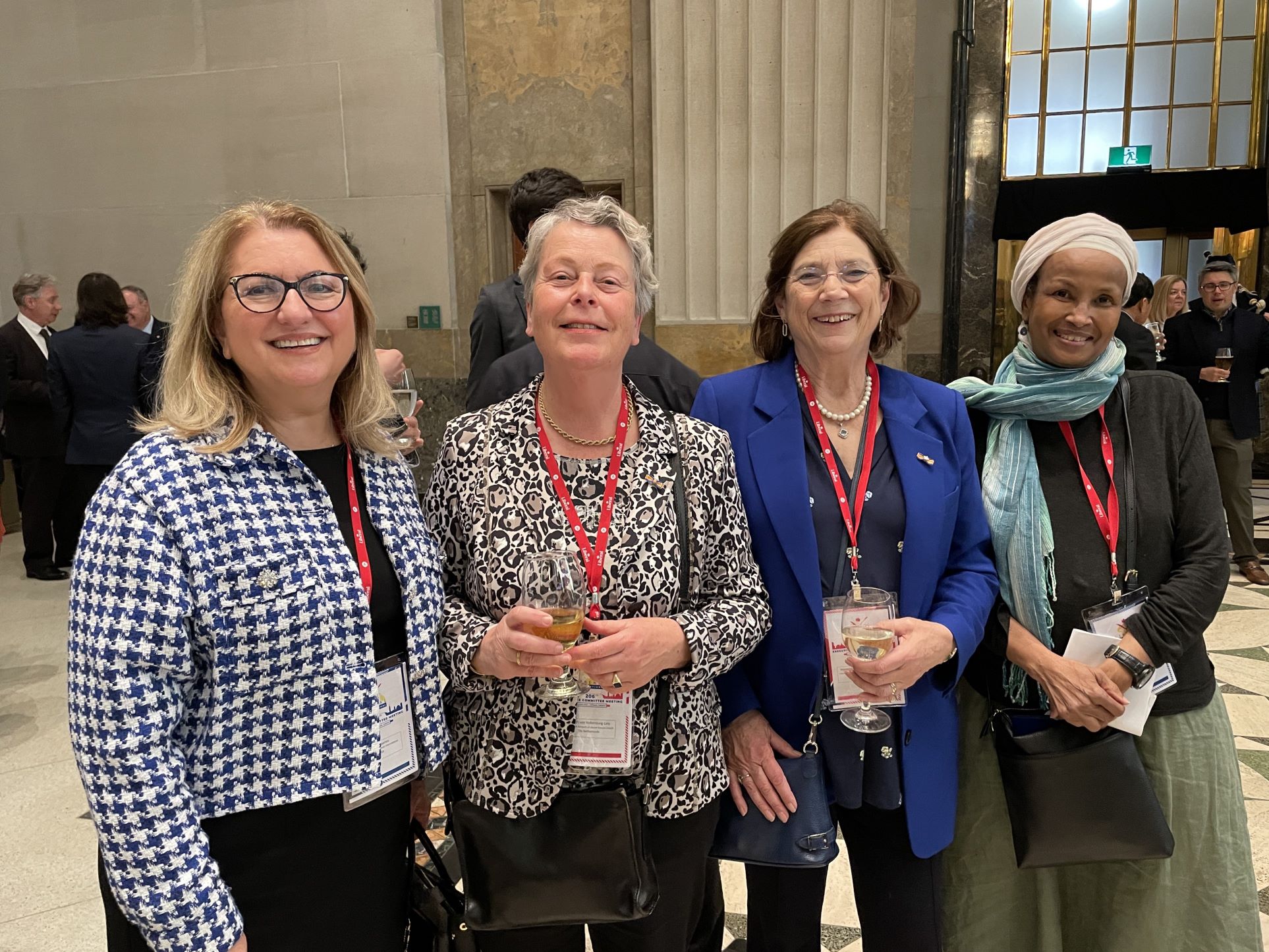
Treasurer Lysbeth van Valkenburg met our Patron Lorna Marsden in Torontoa before the meeting. Unfortunately she was unable to attend the exc. Meeting.
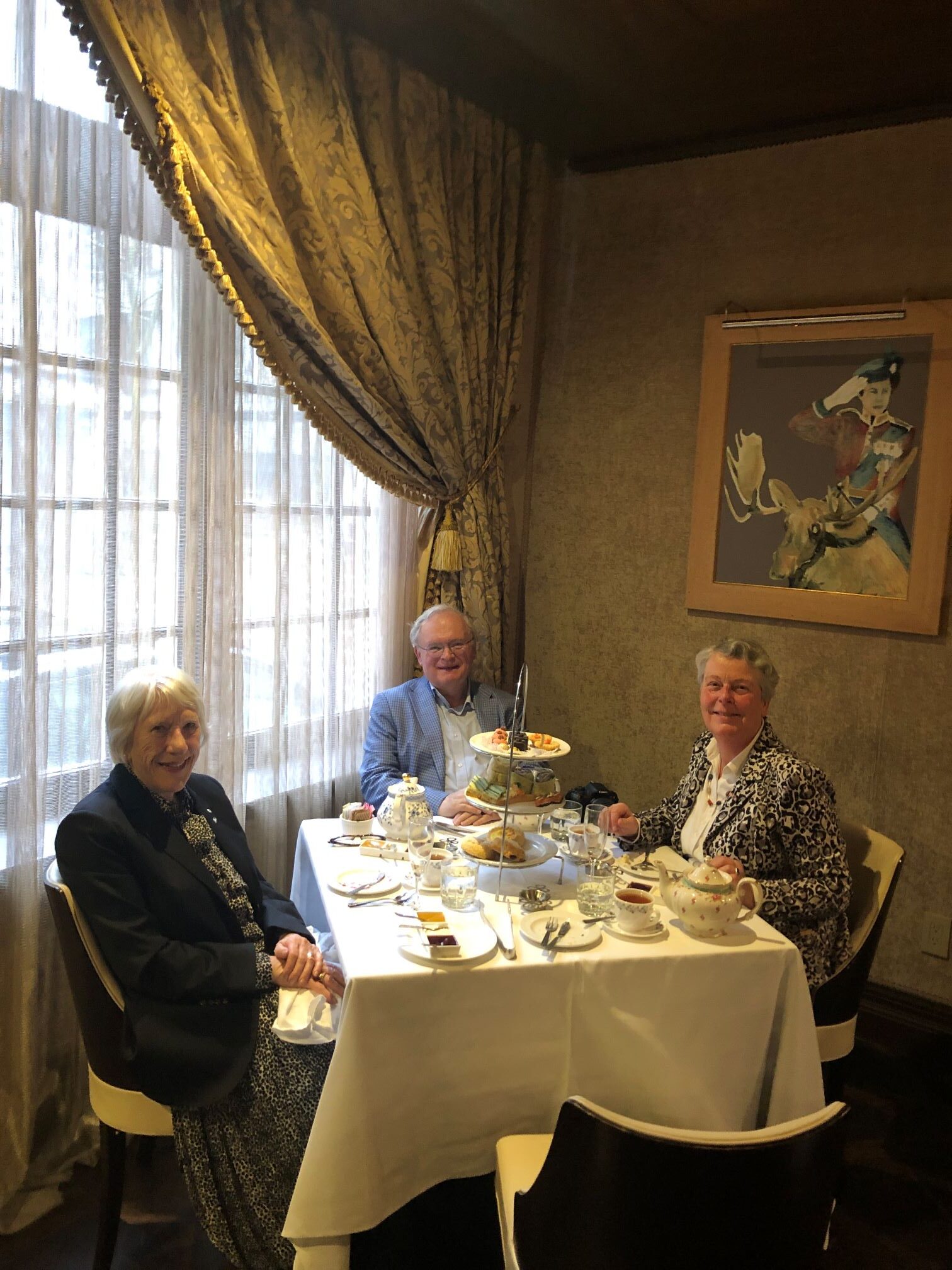
The first evening the welcoming reception was hosted by the Canadian Group of LI in the Sir John Macdonald building.
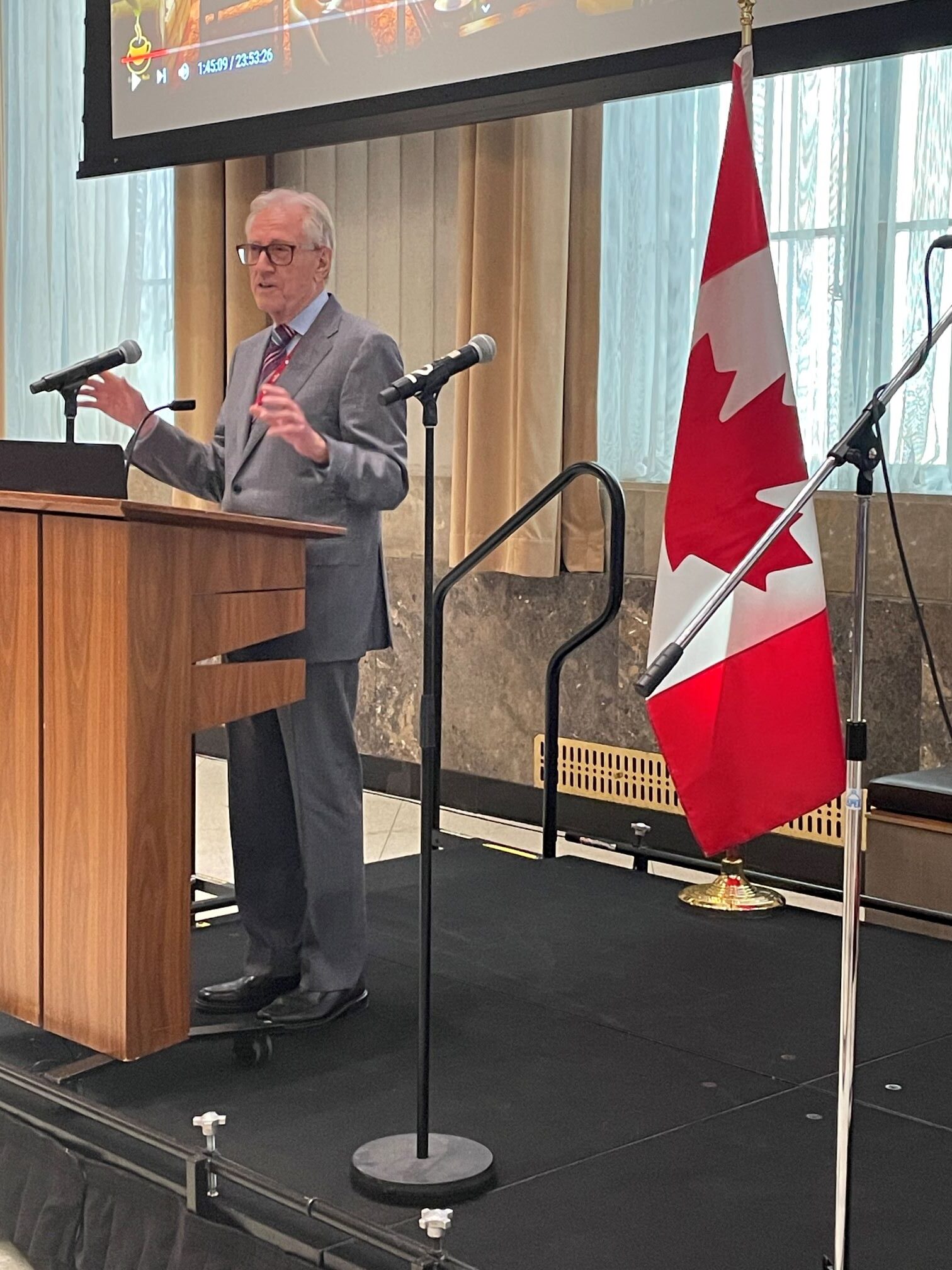
We were welcomed by Sen. Art Eggleton, president of the Canadian Group of Liberal International and Vice President of the LI Bureau, and LI president Hakima el Haité.
Quite a few of the Canadian parliamentarians were present, Leah Taylor Roy, MP on behalf of the Liberal party Canada Parliamentary Caucus also welcomed all guests but especially the women. As we can see there were quite a few women present.
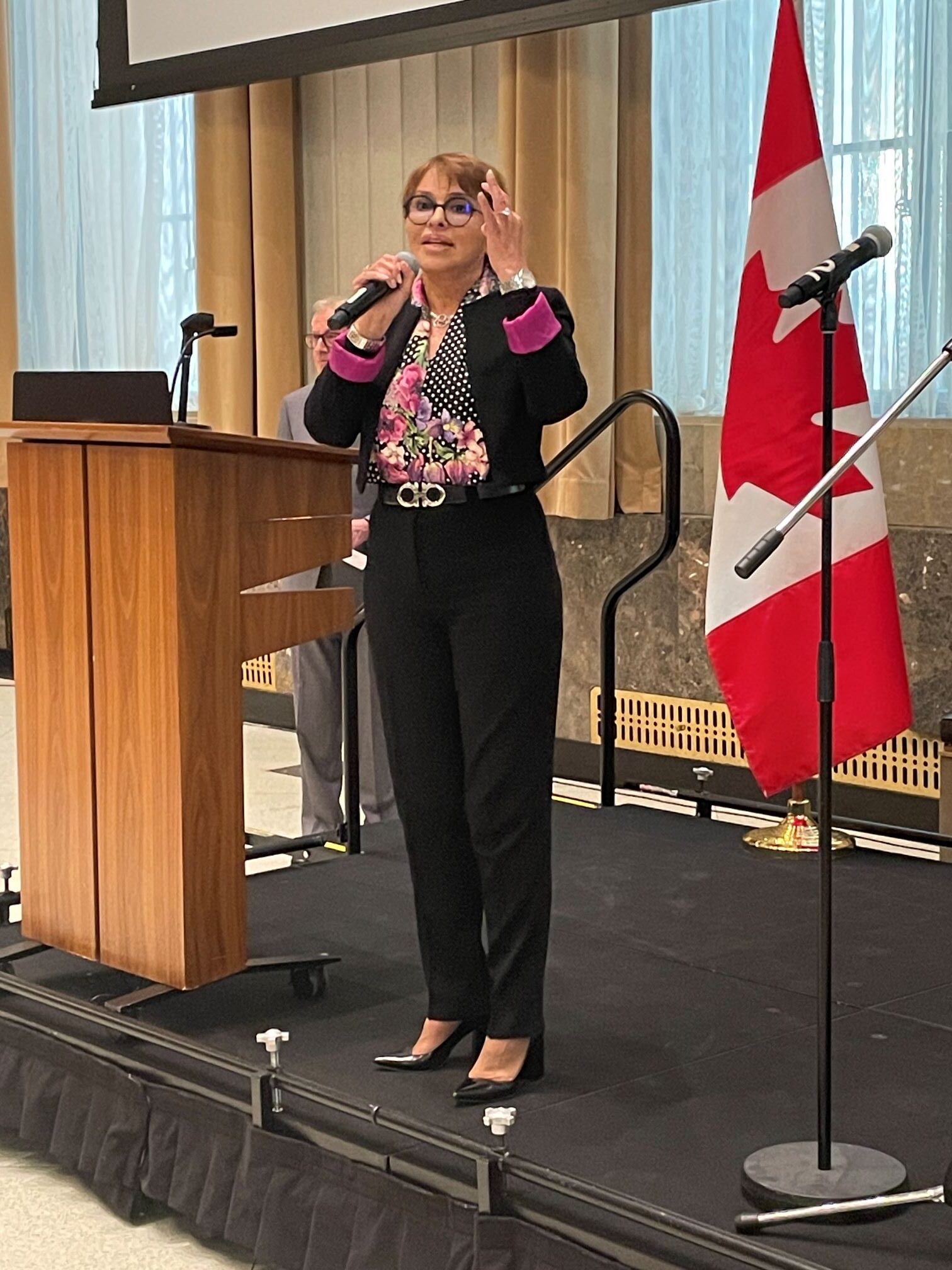
In Canada about 30% of the MP’s are female and she is trying to get more women interested in politics. It is clear that the number of women worldwide is still far from representative of the population they represent. We hope to see some of our Canadian ladies as new members of INLW.
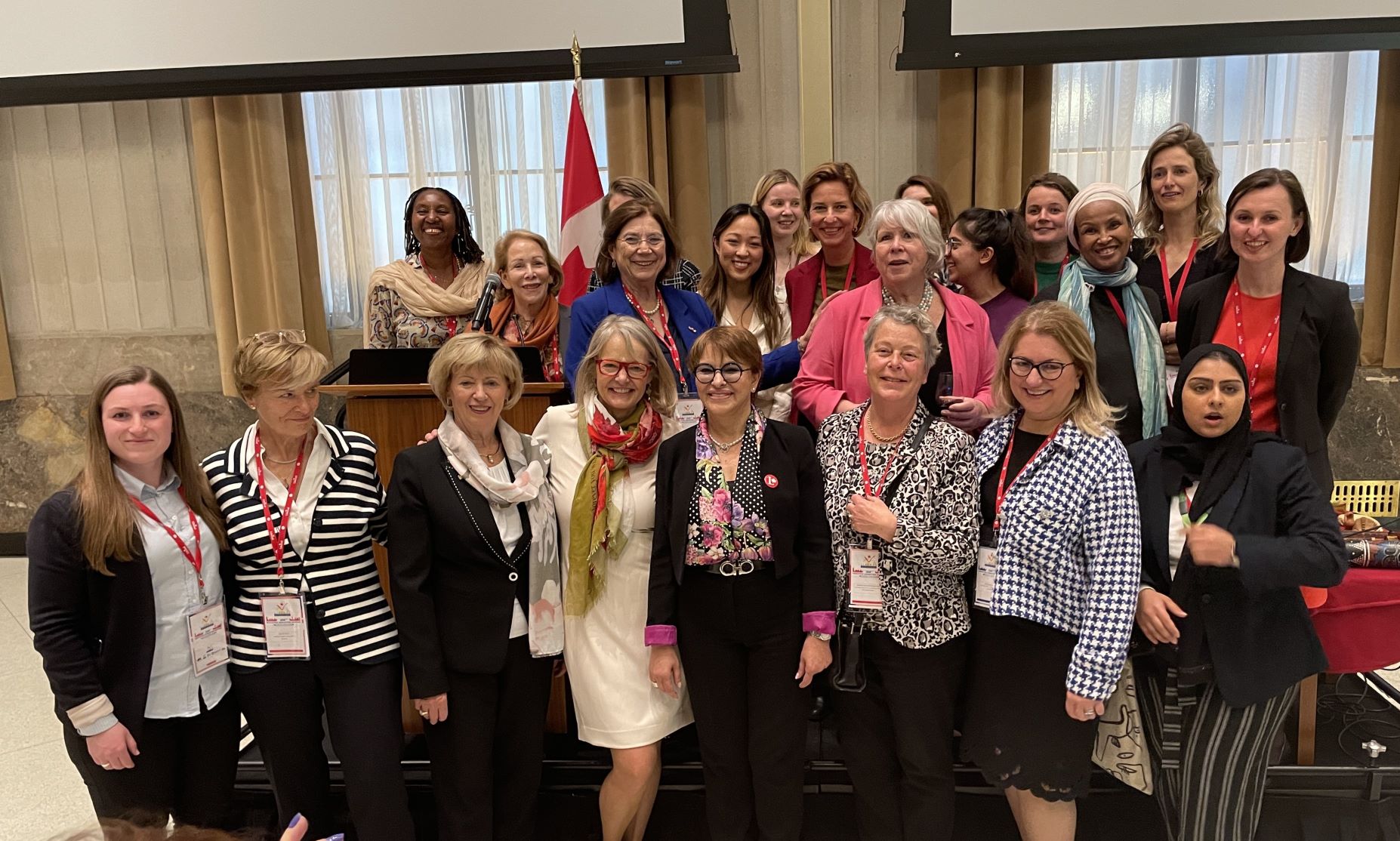
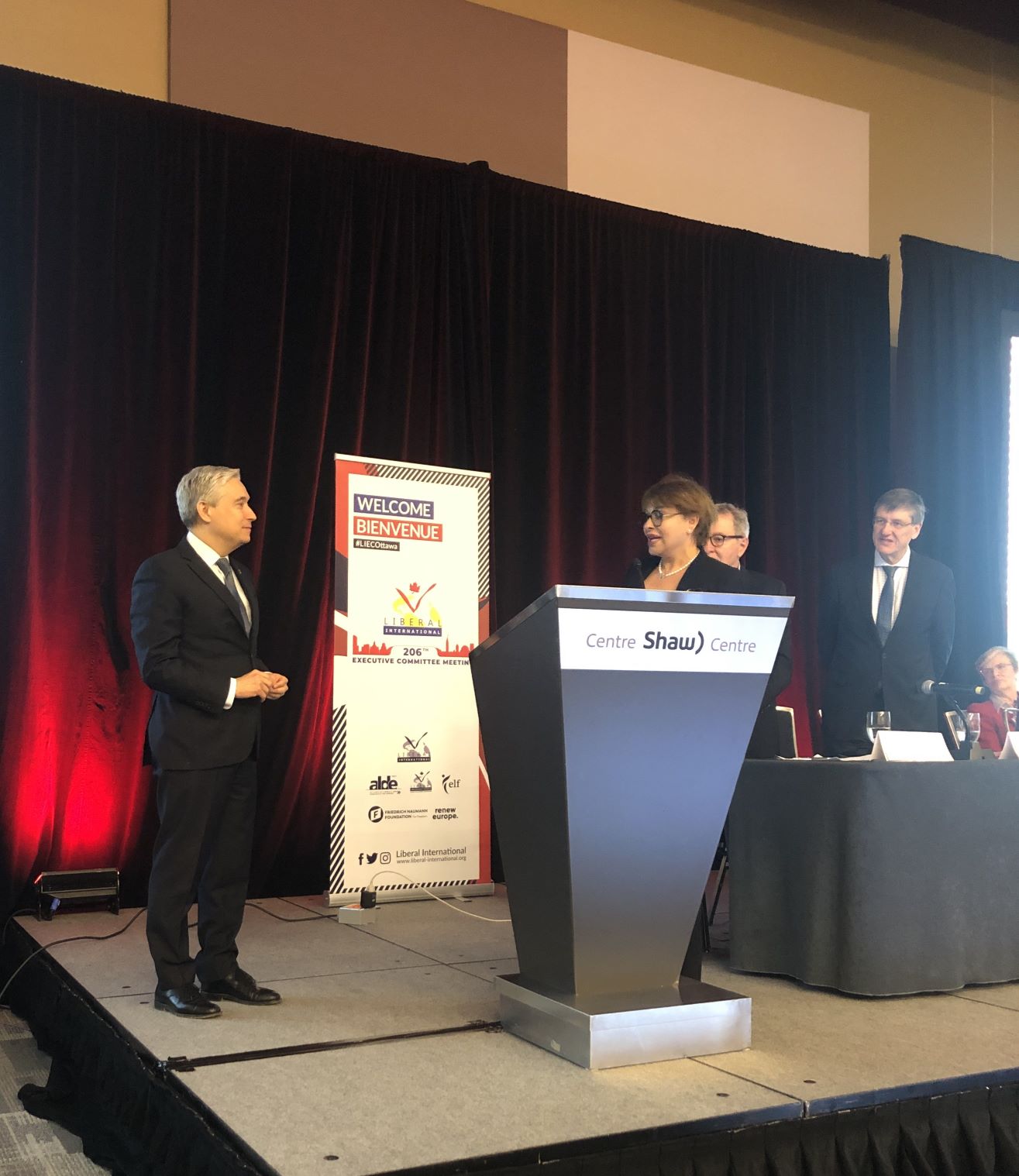
At the opening of the meeting Francois-Philippe Champagne, minister of innovations, science and industry of Canada, gave us an oversight of the problems at the moment.
“The difference of the things that we find important, we as liberals go for possibilities and are optimistic. The word ‘ a liberal’ is better changed in the discussions to ‘ a person with our values’, we share our values with many people, we want a fair agreement in our relations with a fair partnership in which dignity is leading, let’s not leave anyone behind”.
Hakima el Haité stressed that peace is most important, next to food security, energy security, climate change, AI and digitalization.
The war is visible in all these things. We are at the moment in a world where mistrust is found by many people, populists are often good speakers with so called very simple solutions to difficult problems.
We must defend our system, we are safe-keepers of our values, peace and rights. But we have to make our decisions much more with support of the people it concerns. We also have to commit to the Paris agreement of 2015. We must reduce the inequality in the world, work with a fair agreement and partnership.
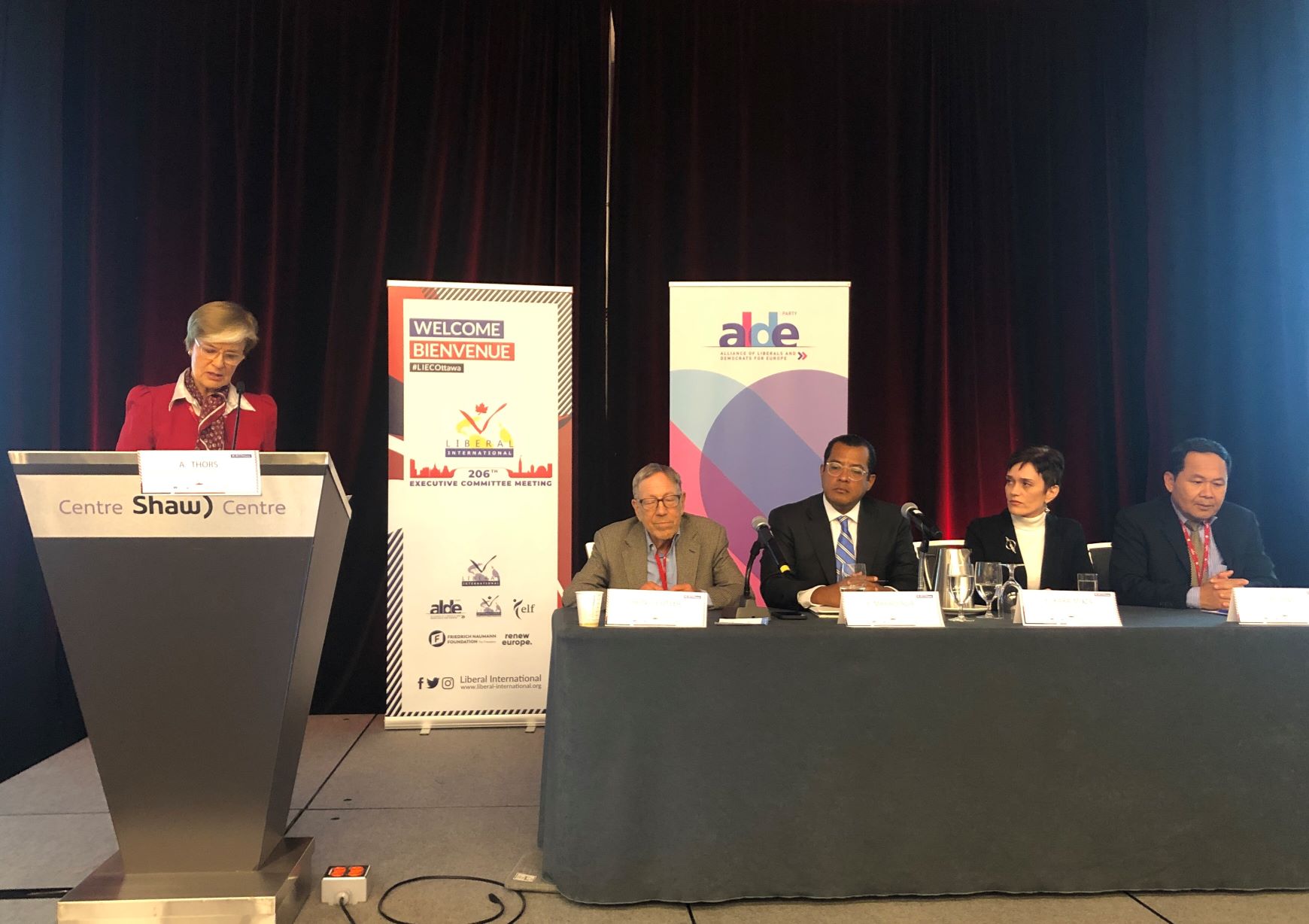
This year the Prize for Freedom was awarded to Vladimir Kara-Murza, journalist and opposition leader in Russia who was convicted in April to 25 years imprisonment in Russia. His wife was present during our meeting. She stressed that this prize can help to keep him safe and it shows that we don’t forget our imprisoned friends.
In his nomination letter LI Human Rights Committee member and former Canadian Minister of Justice Irwin Cotler wrote, “Vladimir Kara-Murza gives expression to the very best of what the concept of freedom represents, and whose heroism stands as an abiding example for all those who share a commitment to human rights, democracy, and the advancement of peace.”
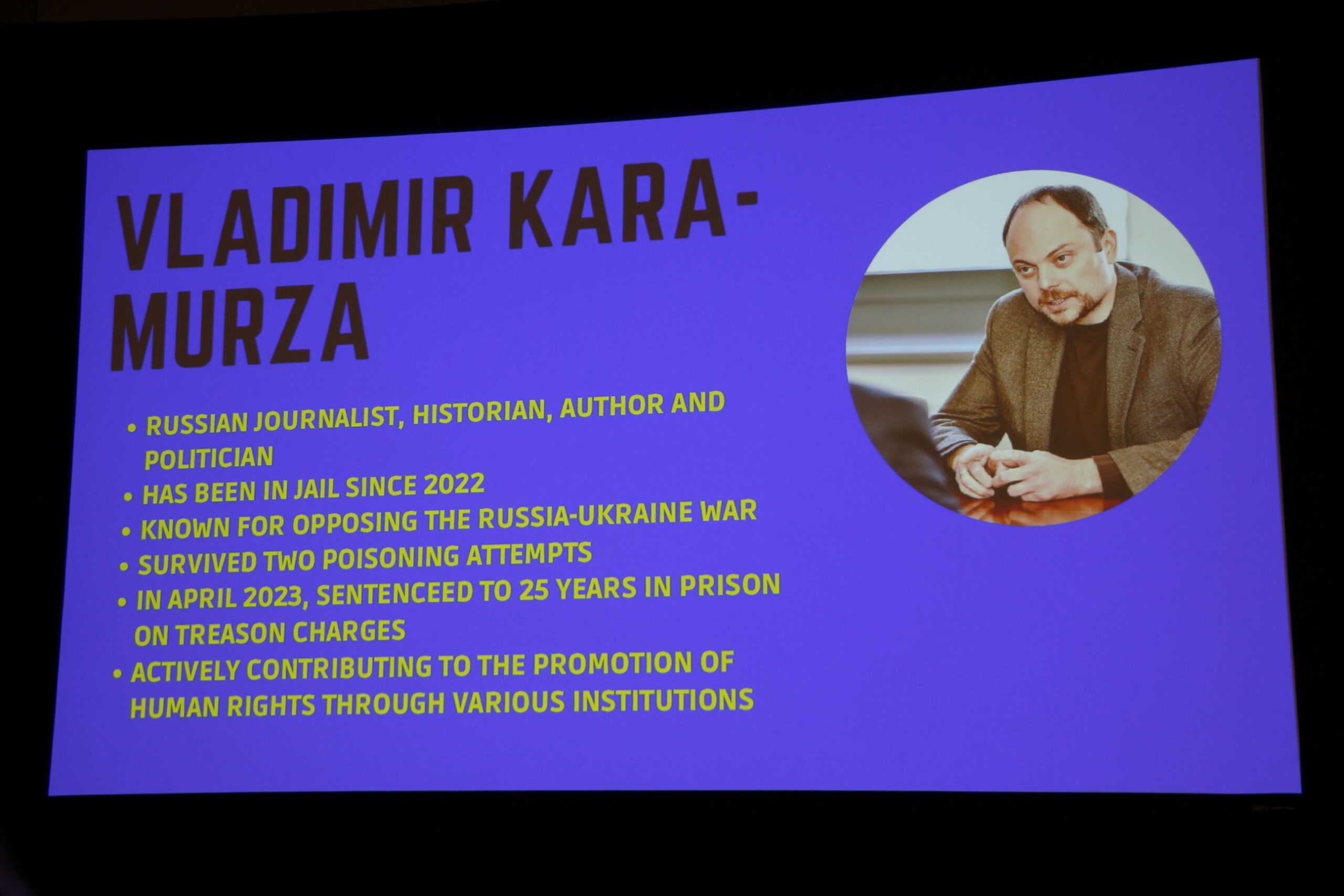
“Vladimir Kara-Murza has without sparing himself fought for democracy and human rights in the Russian Federation. He has successfully advocated for targeted Magnitsky sanctions on human rights offenders,” notes Human Rights Committee Chair Astrid Thors.
The question remains what to do against dictators, release of such a prisoner will only be done if the dictator is put under pressure and that is mostly economic. But we also have to get it legally arranged, legally is never important for a dictator. Only self-interest of the country with economic advantage will get political prisoners out.
The war in Russia will continue so we have to get the sanctions working and keep the pressure on.
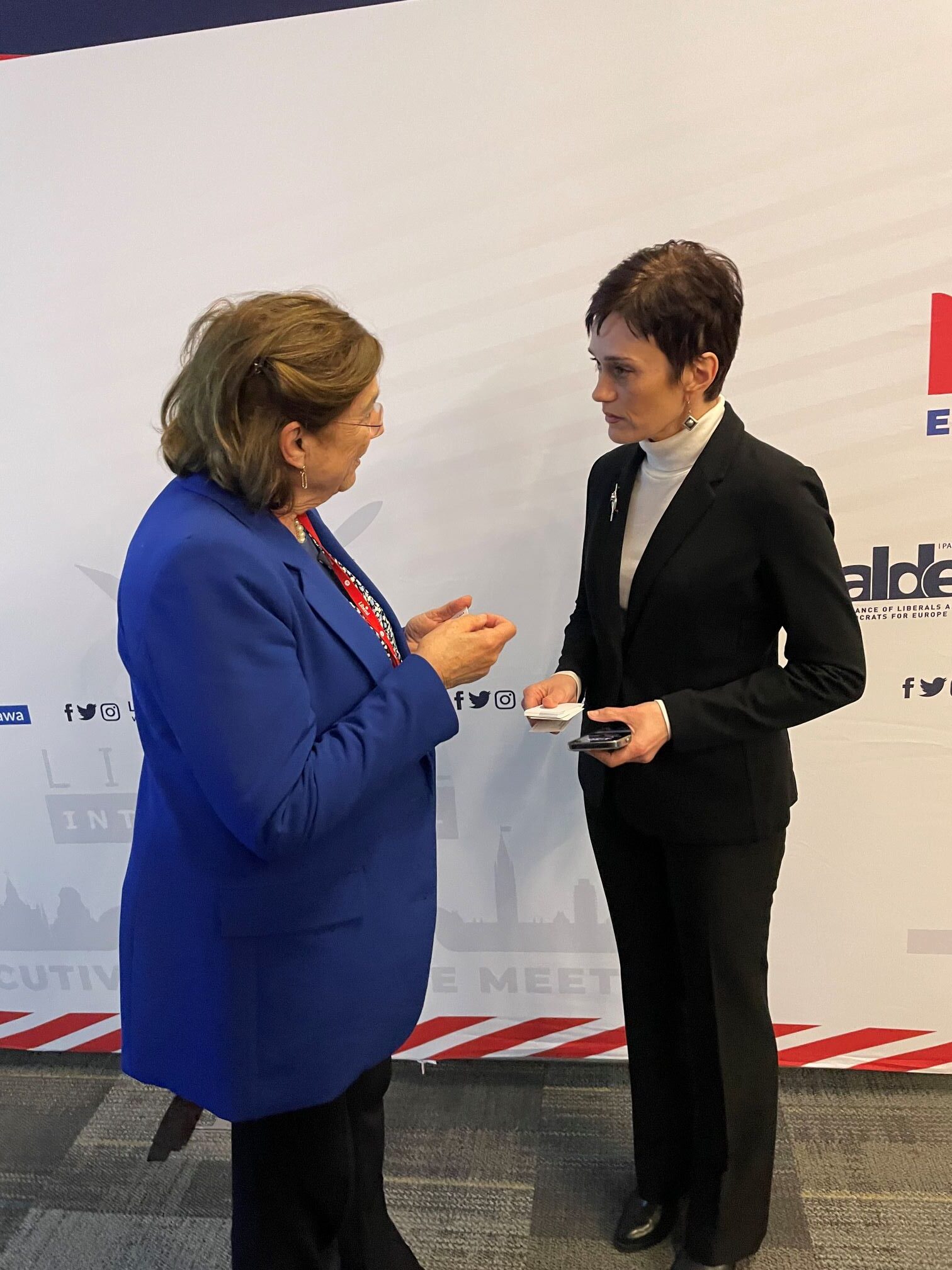
The LI Human Rights Committee organized a parallel session on organizing from Opposition, Overcoming Political Oppression: Evgenia Kara-Murza the Advocacy Coordinator of Free Russia Foundation and wife of imprisoned Vladimir Kara-Murza after working as an interpreter has joined her husband in advocating for human rights accountability and promoting civil society and democratic change in Russia. She is approaching all people like heads of state to ask for them to keep asking for freedom for Kara-Murza. She believes that keeping the name mentioned is the only way to get him free and save his life as he has already twice been poisoned badly and that has seriously damaged his health.
Also Mardi Seng spoke about his sister Theary Seng who is a political prisoner in Cambodia where the President stays on and ignores the results of Presidential elections and imprisons all opposition. She is determined that “wrong will be right” eventually. Only her brother may visit her.
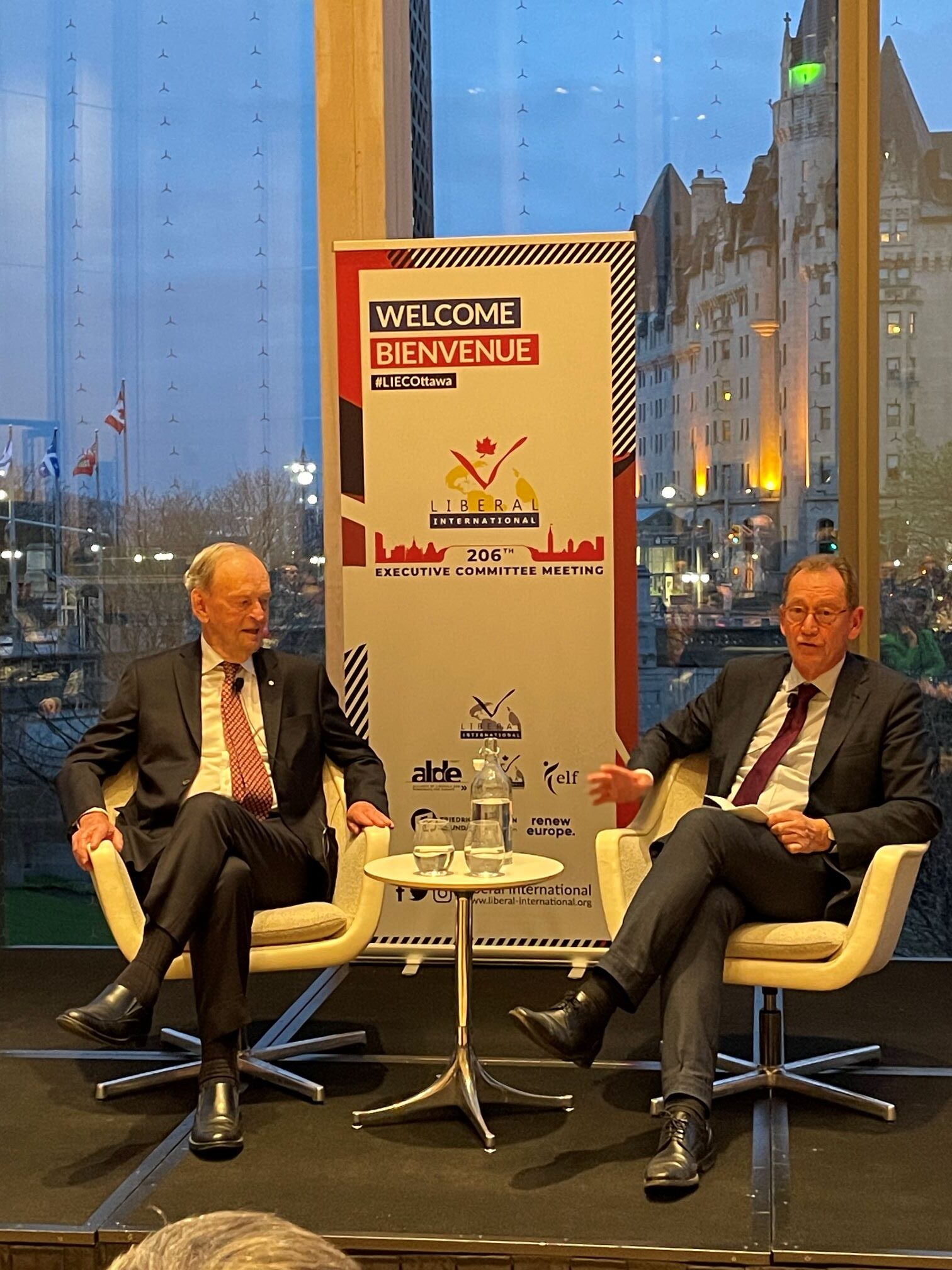
Mr Felix Maradiaga, who is an academic, political activist from Nicaragua and former Secretary General of the Ministry of Defense and Presidential Candidate was arrested in June 2021 and held in solitary confinement in Nicaragua by the President Ortega’s regime for the alleged crime of “conspiracy to undermine national integrity” In February this year he was suddenly released, exiled and flown to the US with 221 other political prisoners. So it does help to get political prisoners free by keeping their names well known, giving their family (often in exile) recognition, giving a voice to political movements in exile and keep giving the prisoners as much as possible emotional help! It must become in the self-interest of the regime to release the political prisoner! The work of the LI HRC remains very necessary.
The last evening FNF sponsored a dinner in the National Art Centre, with as special guest Rt. Hon. Jean Crétien, former Prime Minister of Canada (1993-2003).
The Dutch ladies were invited to attend a meeting of the women parliamentarians and women ambassadors by MP. Leah Taylor Roy. At this meeting we met our Dutch ambassador Ines Coppoolse, she invited the Dutch ladies to attend the 4th of May Netherlands Remembrance Day with the wreath laying ceremony, which we did. For them as Dutch it was moving to be able to commemorate in the Canadian cemetery those Canadians who died while freeing the Netherlands during the Second World War.
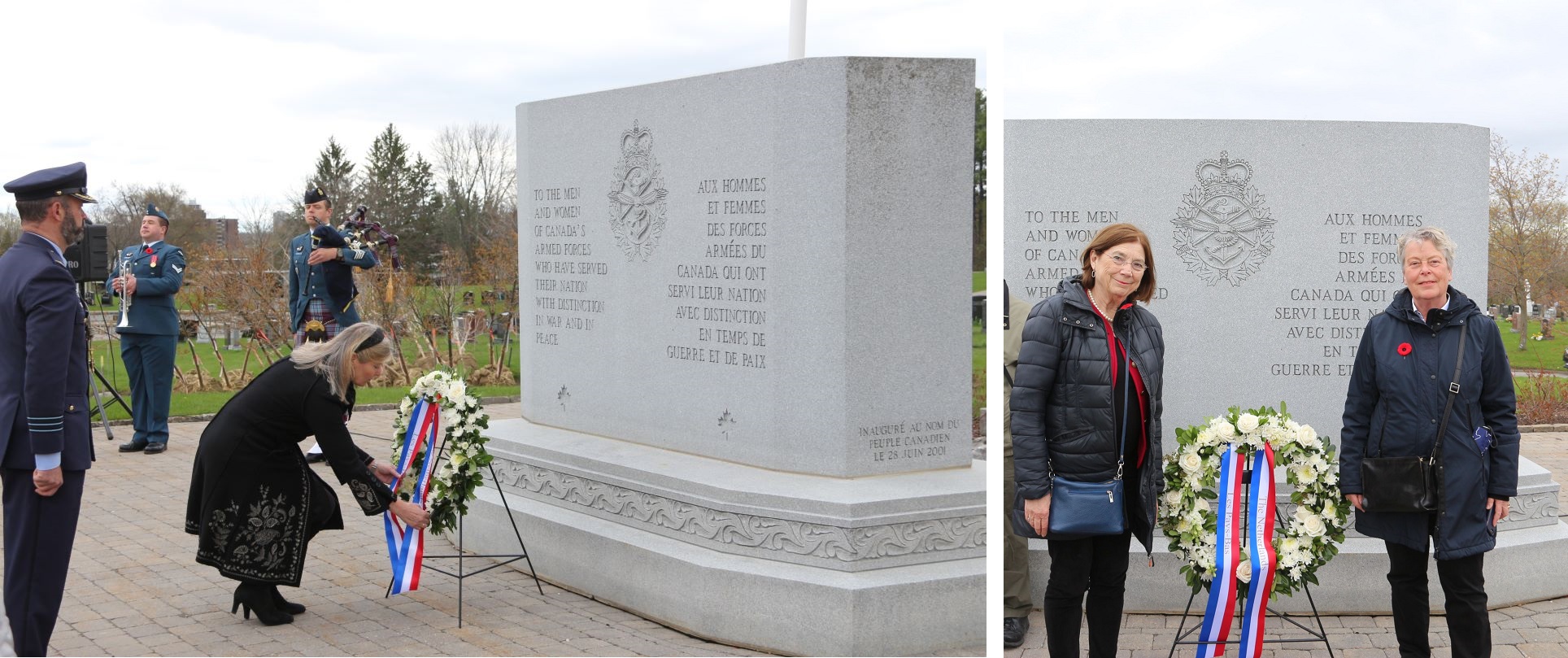
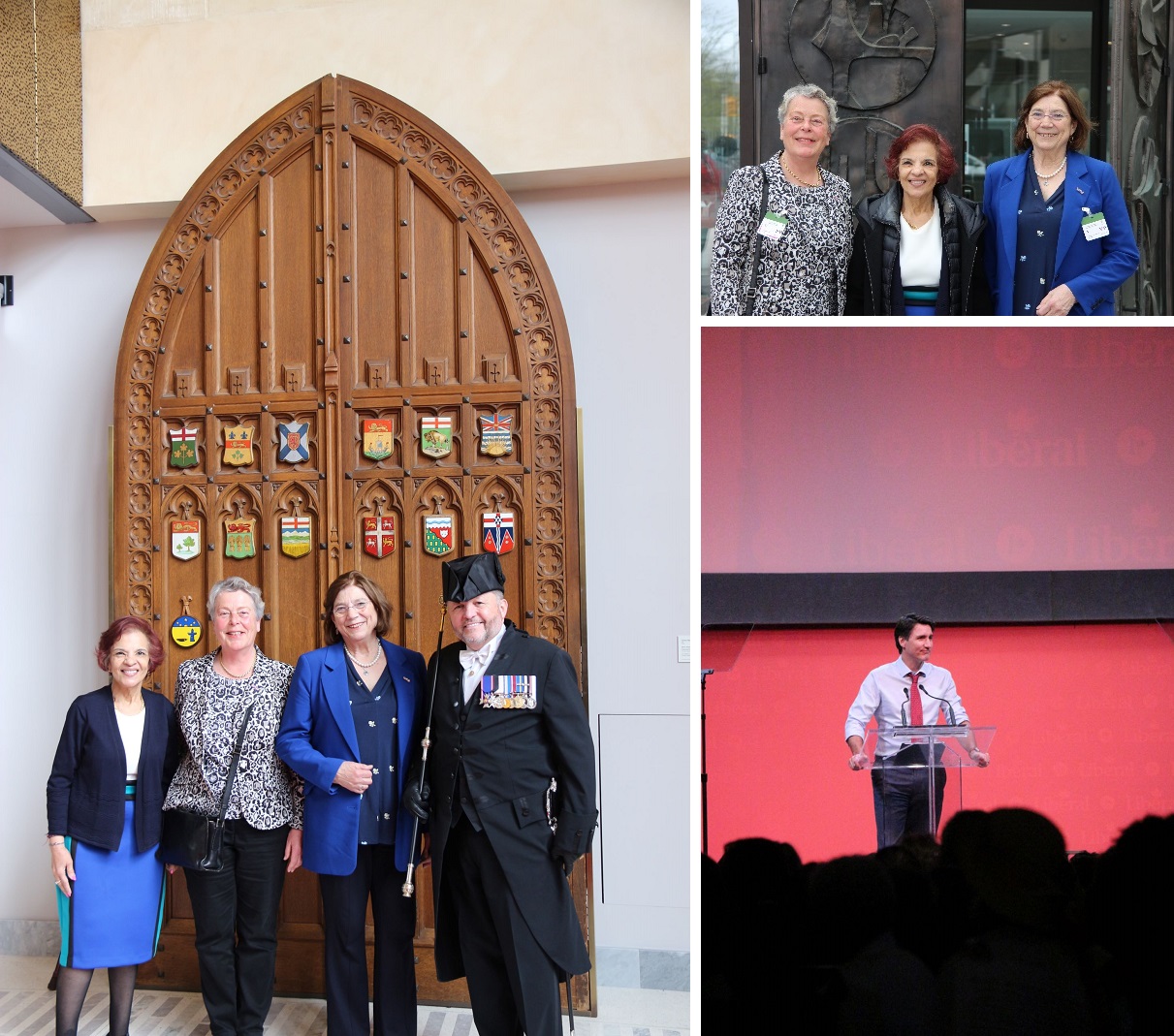
We also were invited to attend the Senate sitting as guest of Senator Mobina Jaffer, former President of INLW at the turn of the century.
At the start of the Canadian congress some of us attended the opening speech of Canadian Prime Minister Justin Trudeau.
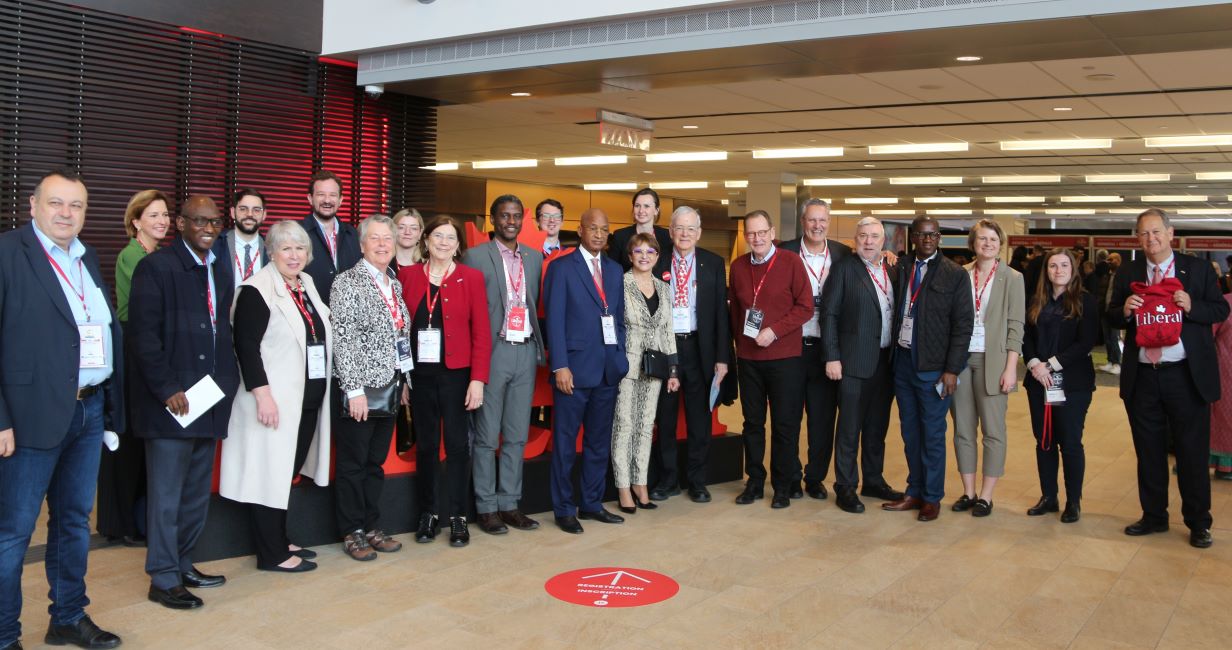
Photos: Danker van Valkenburg
Yesterday the 22nd of March was the World Water Day. Liberal International wants to commemorate this across the membership of LI. As such, the LI CJC identified me as a valuable stakeholder, observing Water Day from the perspective of women’s access to water.
The importance of gender equality and women’s empowerment, particularly women’s economic empowerment is at the core of International Network of Liberal Women’s mandate.
This means: Enhancing the role of women as drivers of poverty reduction, promoting female investors and entrepreneurs, and recognizing the link between gender equality and safeguarding the environmental promotion of inclusive and sustainable environment, water and sanitation, and directly contributing to SDG 6 on clean water, clean environment, innovation and infrastructure and to SDG 5 on gender equality.
Our INLW Board member, Ruth Richardson, has recorded a short one-minute video on the subject.
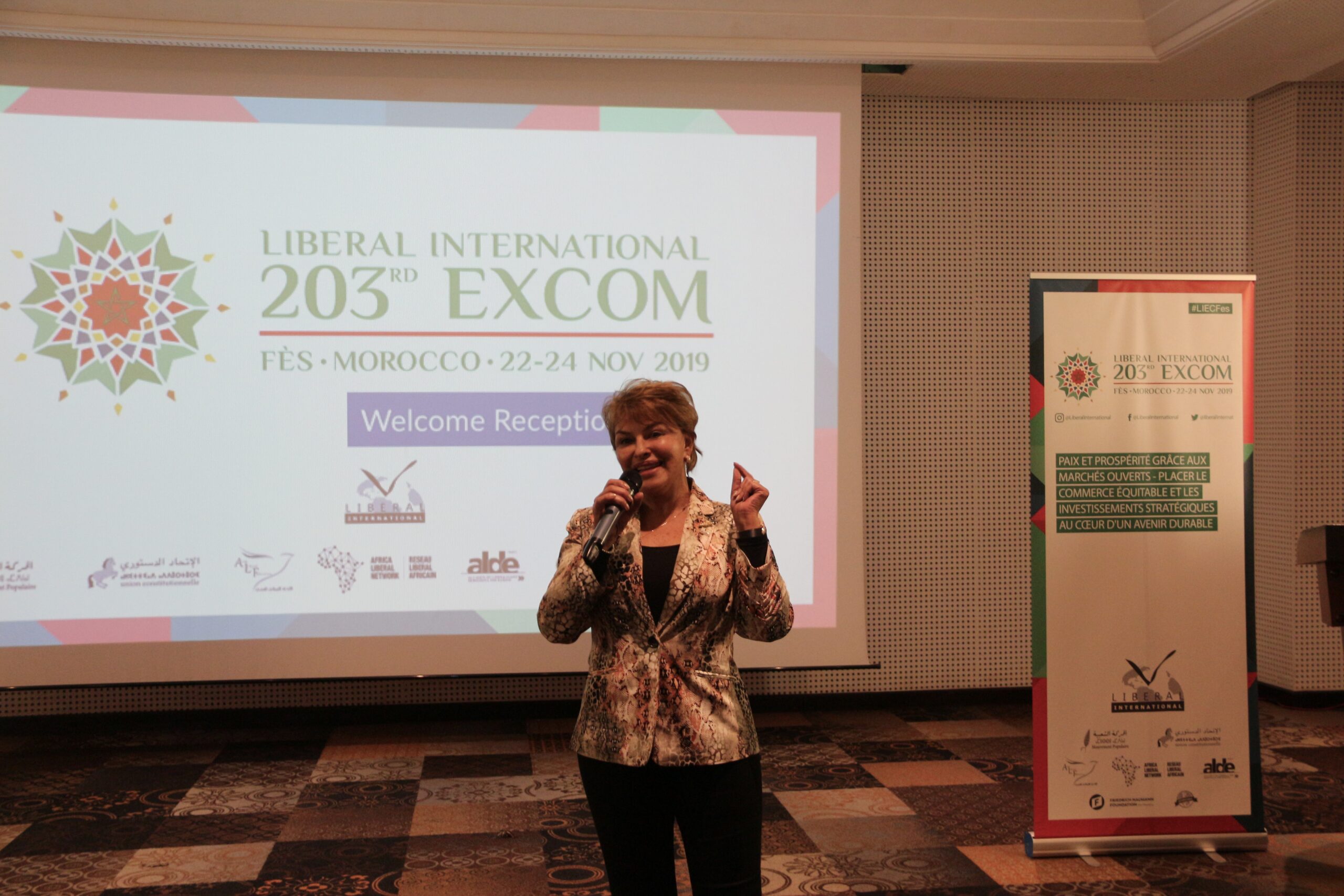
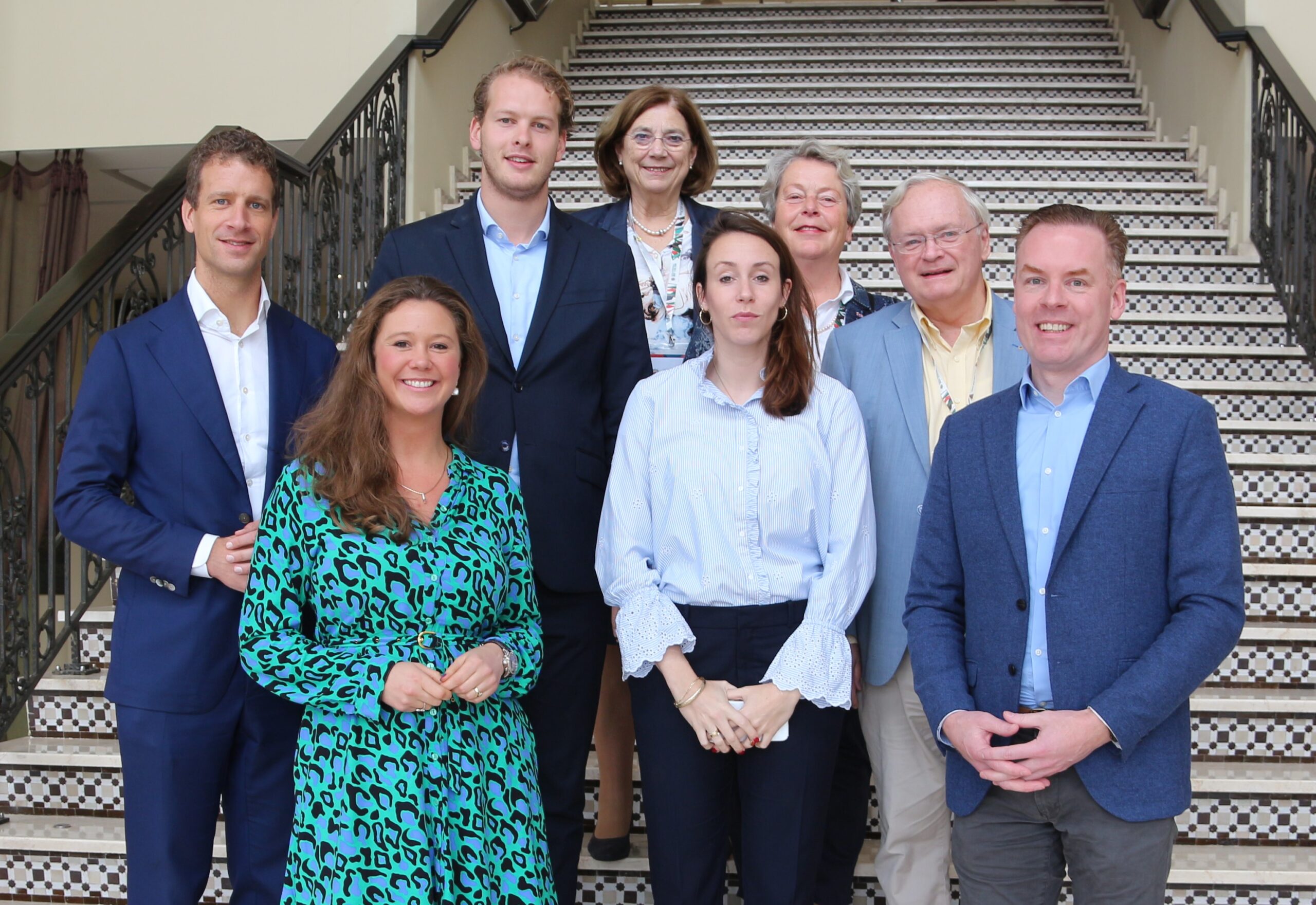
This year Liberal International met for the Executive committee in Fès. The Liberal family was present with over 80-members from 27 countries and 32 parties from all over the world. At the welcome reception, Hakima el Haité president of LI, was very happy to see so many friends in Fès, her place of birth. The main theme of this meeting was “Peace and Prosperity through open markets”, also we met to finalize the renewal of the organization by finalizing the discussion on LI’s constitutional amendments. by The WIPP (women in political parties) inclusivity handbook was presented. The aim of the WIPP Inclusivity handbook is to strengthen the political participation of women. All LI member parties will receive a copy during 2020 and will be asked to complete the WIPP inclusivity Index for their party and send it back to LI headquarters for further analysis.
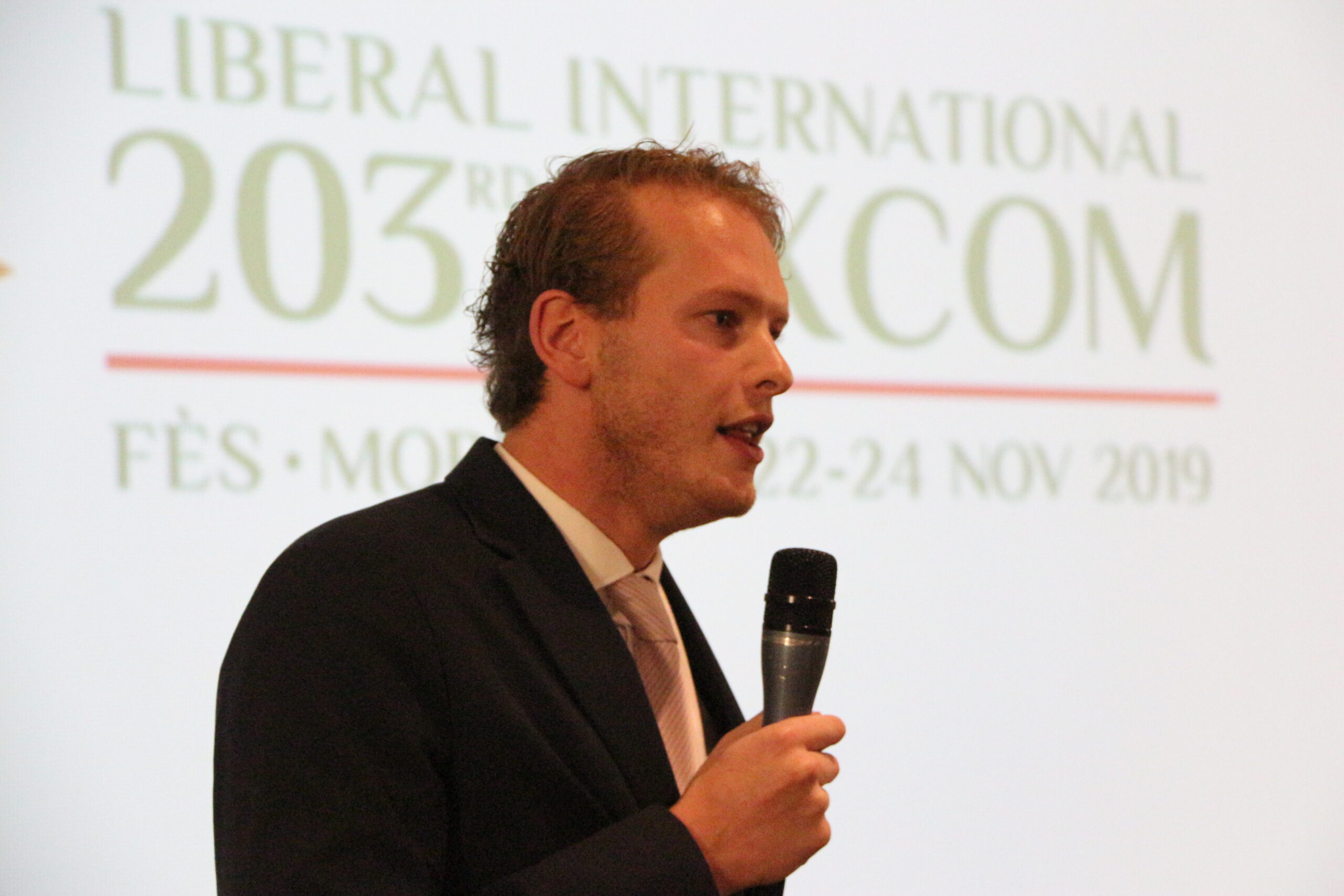
During the opening reception there was also the introduction of the Liberal Democratic Training Academy, a partnership between LI and VVD. Gijs Houben, member of the VVD, gave us some insight in the setup of the academy. It is for training politically oriented, high potential and talented youth. One of the young talents told us in her speech how she now had seen that your choice is more important than abilities, advocating for youth and defending liberalism and through her training she became really interested in politics and wants to use her new knowledge for the liberal party.
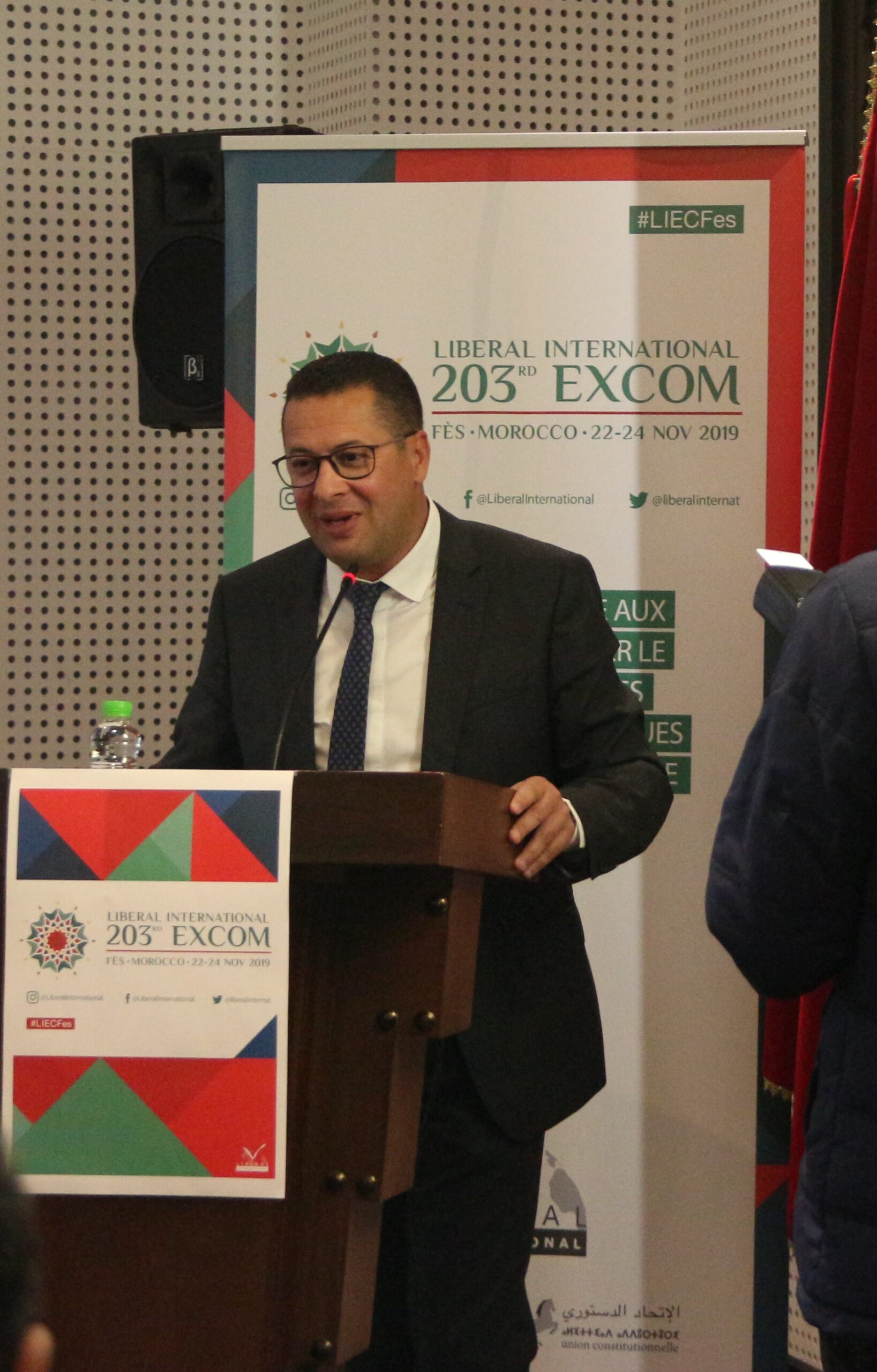
The opening gave us Mr. Mohammed Rherras, director of Human Resources, Ministry of Culture, as master of Ceremonies. He introduced himself by giving some information about Fès. We find the oldest university of the world in Fès, and this was started by a woman.
Hakima el Haité told us about the beautiful architecture of Fès with the Medina with its 5 gates and over 1000 streets. The Medina is certainly worth a visit. She continued with: “For the future the infrastructure of water will be one of the most important issues in the climate discussion. Basic needs are freedom and human rights in a changing world of economic, political and multilateralist differences between countries. We must work for peace and democracy, it is good to wish to make money, but work must be re-invented. Realism is necessary in human rights, climate change, poverty and inequality while respecting partnerships that promote democracy and stability. We must not be blind that by just making money you can also create poverty. Space for fair trade and responsible partners with support of all political parties”. Hakima el Haité gave us food for thought at this opening of our 203rd ExCom and she thanked her liberal Moroccan party, le Mouvement Populaire, for all the support she has had in the past and still gets now.
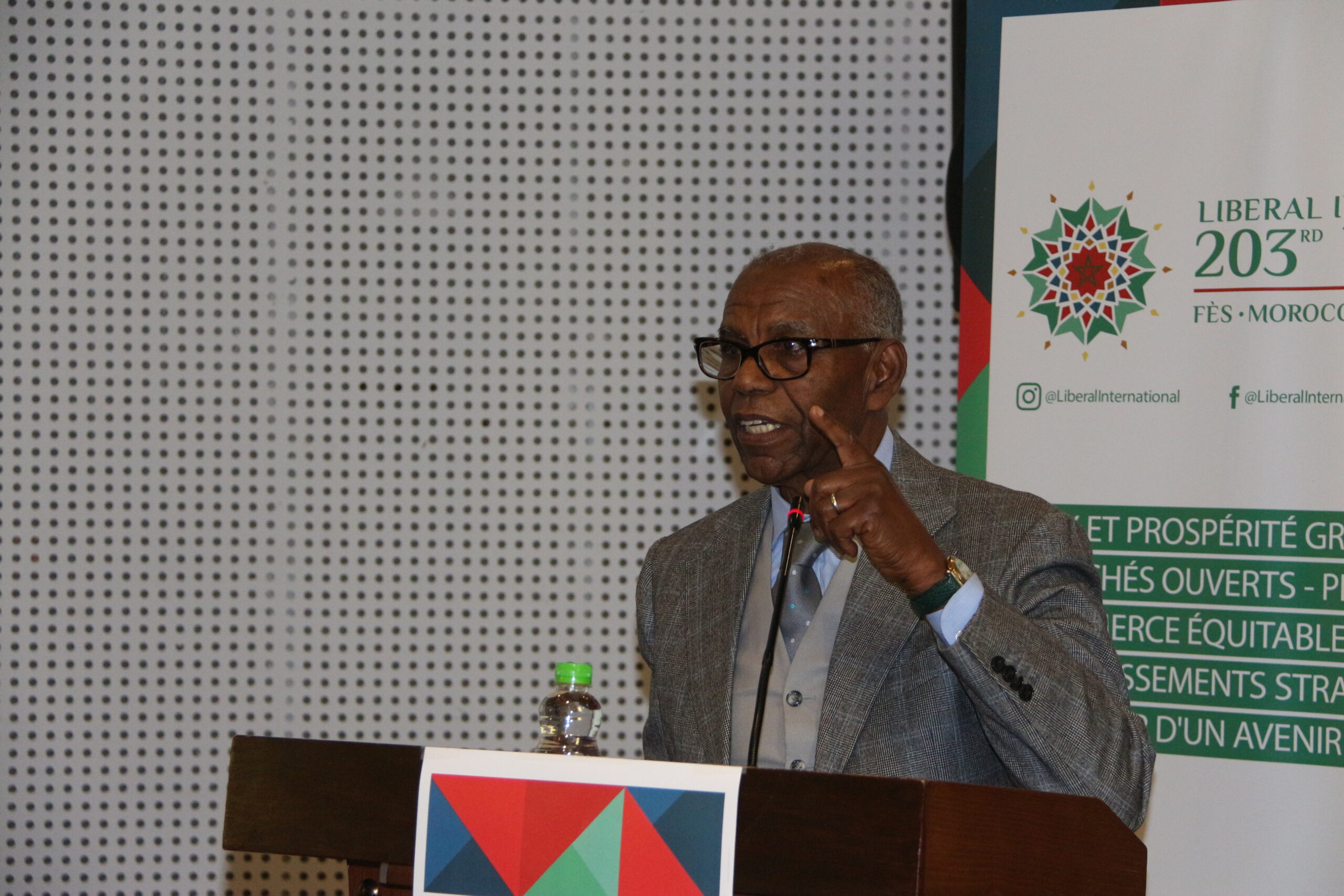
Prof. Mohamed Tamaldou, the first promoter of Liberalism in Morocco and of the other Moroccan Liberal Party, Union Constitutionelle, addressed the delegates and guests: “Morocco has hosted LI events on 3 occasions. I am happy to be here in Fès at LIEC Fès because this meeting is headed by a Moroccan woman who calls for freedom.” In the Arabic world a women president is rare. In Africa the level of freedom is different from the international. We need to translate liberal concepts such as freedom. It is still seen as revolutionary; we are developing a work plan to find a root of liberal thinking in our culture. This is most important”. “The linking between what we want and what we can do with liberal conventions is very often not translated into the Arab world. Many famous books written about freedom and liberalism cannot be read by most of the people of the Arab world. The Arab world must change its concepts of liberalism and the traditions of Islamic world. Liberalism is like a Moroccan dish in which you can put many different ingredients, we need different ingredients to get great Moroccan liberalism”.
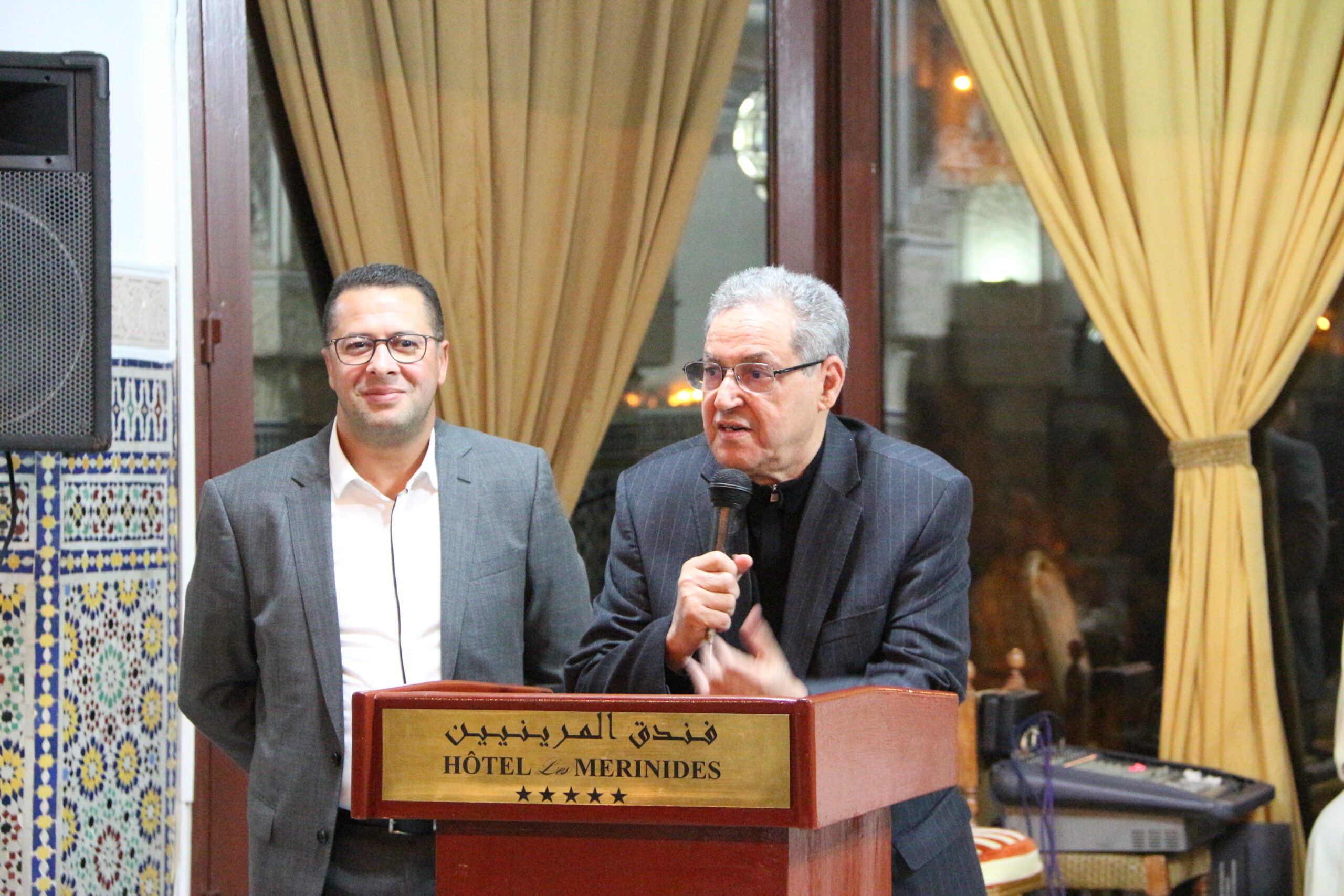
He was worried that the world is changing shape. We are living in a critical period, where diplomatic leadership and multilateral conventions which brought us economic stability are dying. Diplomacy is being taken over by Populism and the might of money is taking over from multilateralism. We must together save Democracy which faces many challenges like that of the flows of migrants.
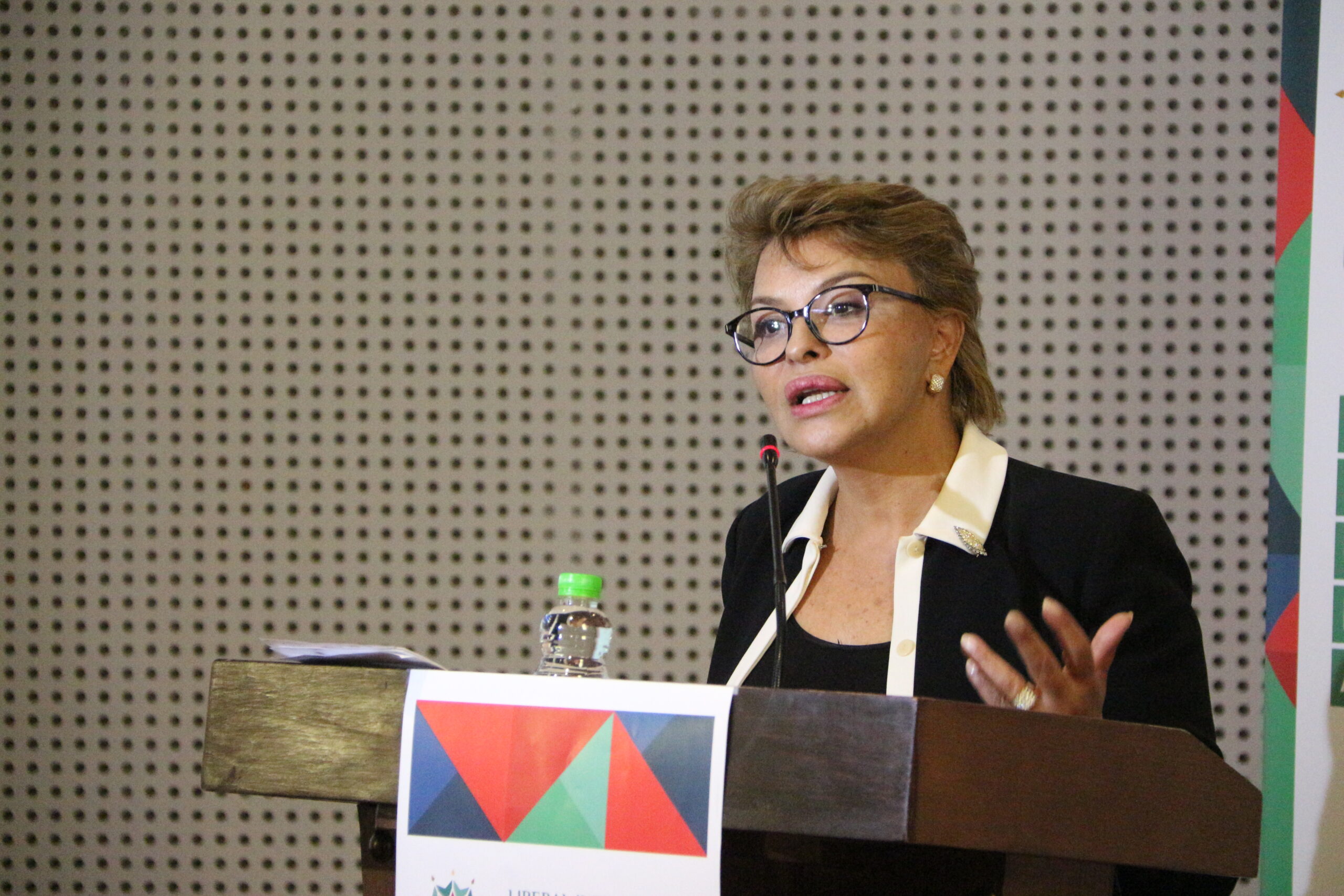
Mohand Laenser, secretary general of Mouvement Populaire, also reminded us of the oldest university and the culture here in Fès. He said: “We must explain liberalism and must stay away from populism. Many people in Morocco only know the negative side and not the values we are working for. After 1956 and the independence of Morocco a mulitiparty system was started and in this way tolerance all over grew. Now we want to see progress also for the women. Despite religion, which is still very dominant in Morocco, there are quite a few women visible everywhere.
Now there is a lot of unemployment and much protest. There is a huge difference between the city and the country. Most of the problems must be solved in the local community and money is needed to get this done. Also, the right of women and children must be protracted, as countries we must help each other. Defending liberalism needs courage in the Arab world. In 1992 there were 2 women in parliament. One of them came from Fès. 2011 there were 67 women, in 2017 81 women in parliament (21%) which consists of 395 members. Investing in women is important, women are different in their perception and priorities and the way they want to implement things. This can make a better balance. The women issue is a social issue and a worldwide problem, they also get paid less. We as liberals must set an example also in our parties.
The WIPP (women in political parties) inclusivity handbook that is introduced during this meeting must be shown every year to show us the progress. Astrid Thors, LI vice president, underlined the importance of the handbook. We must implement equality within our parties. The WIPP was set up for a large part by Tamara Dancheva, consultant for Liberal International. She gave us more figures. Worldwide there are 24% women active in politics. 11 women are heads of state and 12 women are heads of government. In Sweden 60% of the politicians are women since the latest elections. With more women you can make society more inclusive. Also, elections cannot be won without women. New votes can come from women voters. Without data you cannot get a good insight of the progress. One of the problems in politics is the harassment that is met by female politicians.
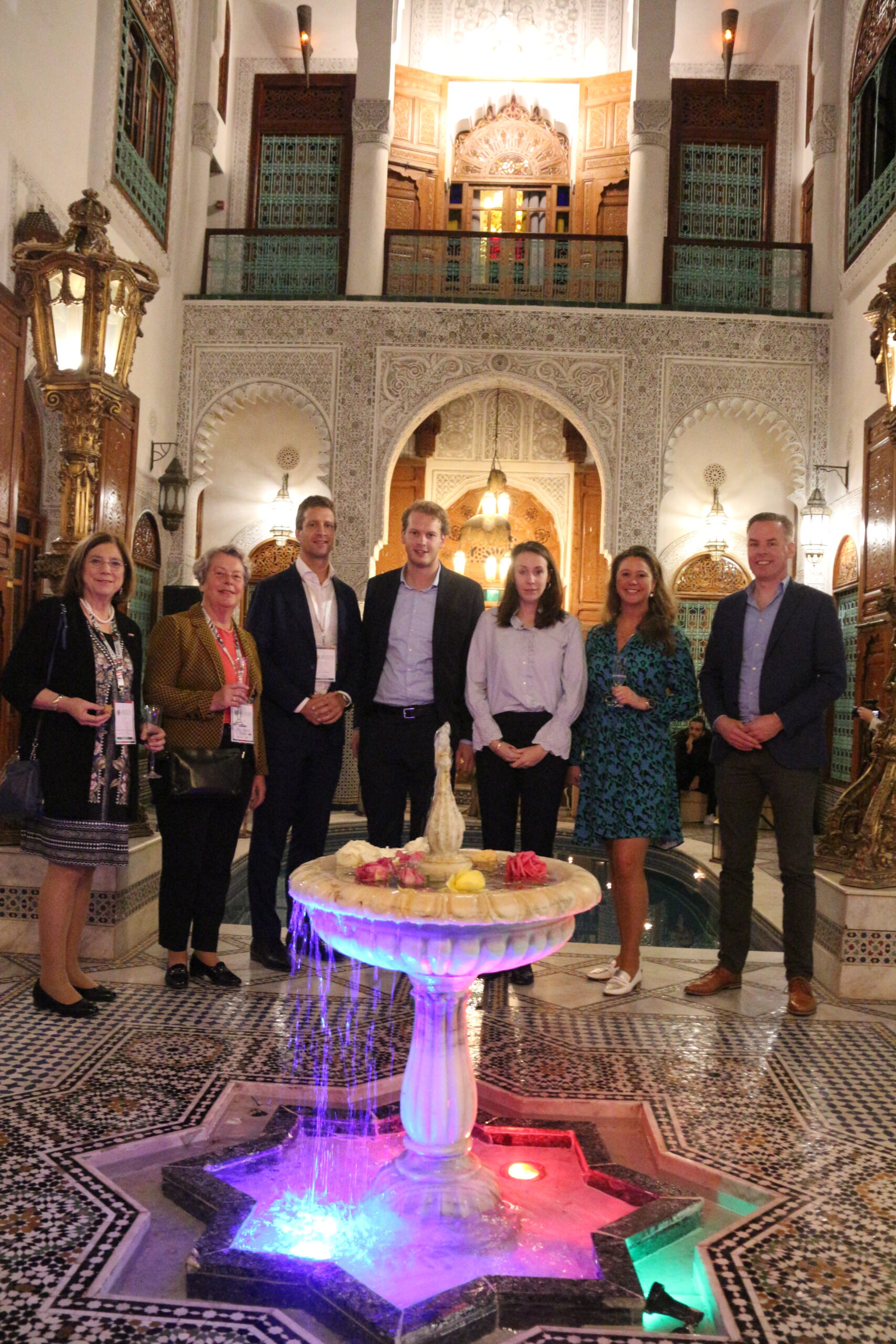
During the executive committee meeting the former UN High Commissioner for Human Rights Prince Zeid Ra’ad Al Hussein was awarded the LI Prize for Freedom for 2020.
In the evening we had a wonderful dinner at the Riad Arabesque in the middle of the Medina.
On Saturday important resolutions were accepted during the meeting such as urgency resolutions on the situation in Cambodia, Catalonia en Hong Kong and others such as one against gender-based violence (see website LI).
Mr Cellou Dalein Diallo who is the leader of the official opposition party in Guinea and former Prime Minister from 2004 till 2006 and elected Vice President of LI in Andorra in 2014 told the Ex Com meeting that he is currently running for President in Guinea. He is hoping for support of LI members as the current President Alpha Condé wants to stay on for an unconstitutional third term. This has brought about a peaceful manifestation of 2 million people, but later demonstrations were held in protest which have been met with military force. Mr Diallo is afraid that the election will not be held or if it is held that it will be held in a lawful manner. He hopes he will survive it all. LI will follow the developments closely.
The Human Rights Committee held its administrative meeting, in which the different working groups reported on their work and plans.
The LI HRC Priority working areas will be:
1.Women’s Political Empowerment;
- Digital Space and Human Rights and
- Defence of Civil and Political Rights/ Countering the Shrinking Democratic Space around the world. In 2020 the HRC will take part at the Geneva Summit for Human Rights on February 18th. Margaret de Vos participated as member of the LI HRC on behalf of INLW
The next Liberal International 63rd congress will together with our parties and partners MRF and LIBSEEN, will convene in Sofia, Bulgaria on 25-28 June 2020.
During that congress INLW will hold its next General Meeting.
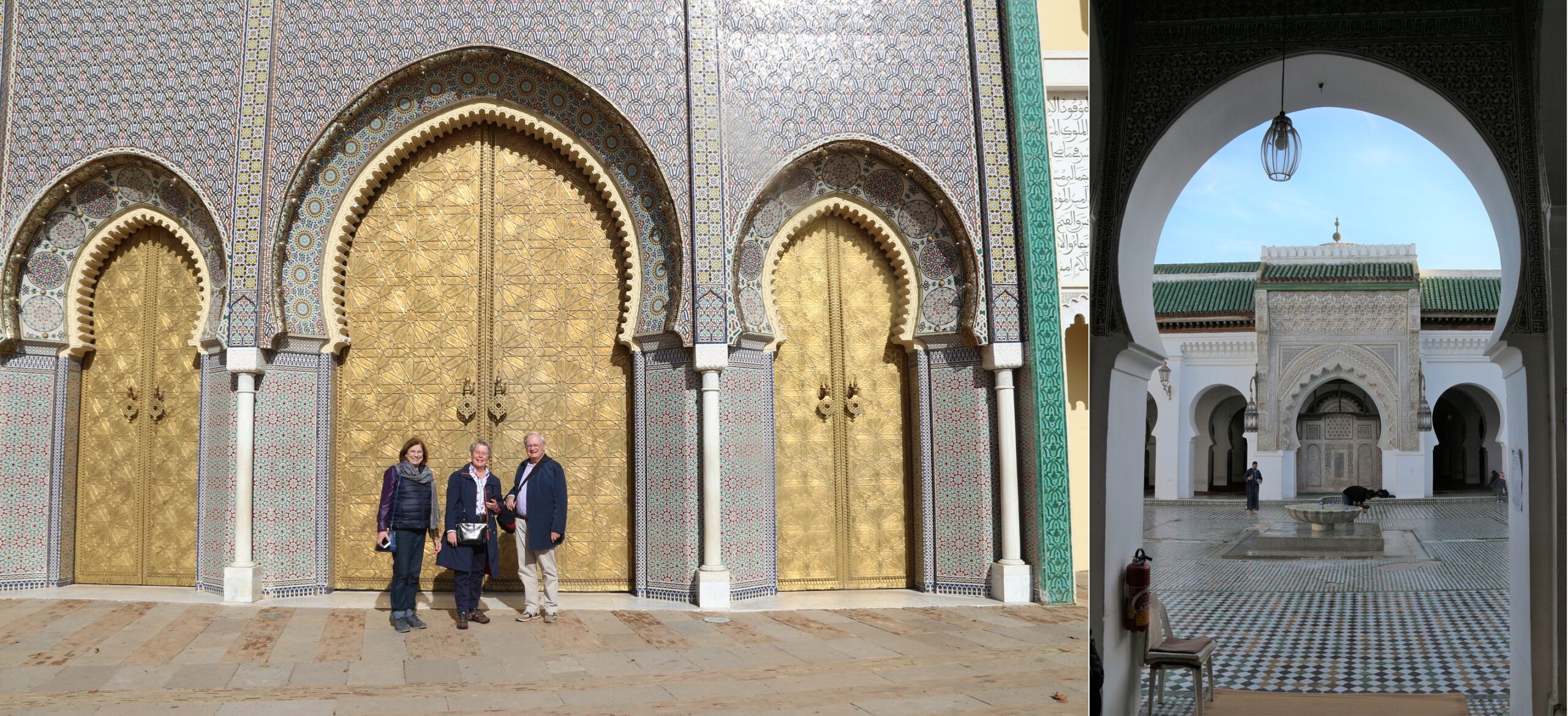
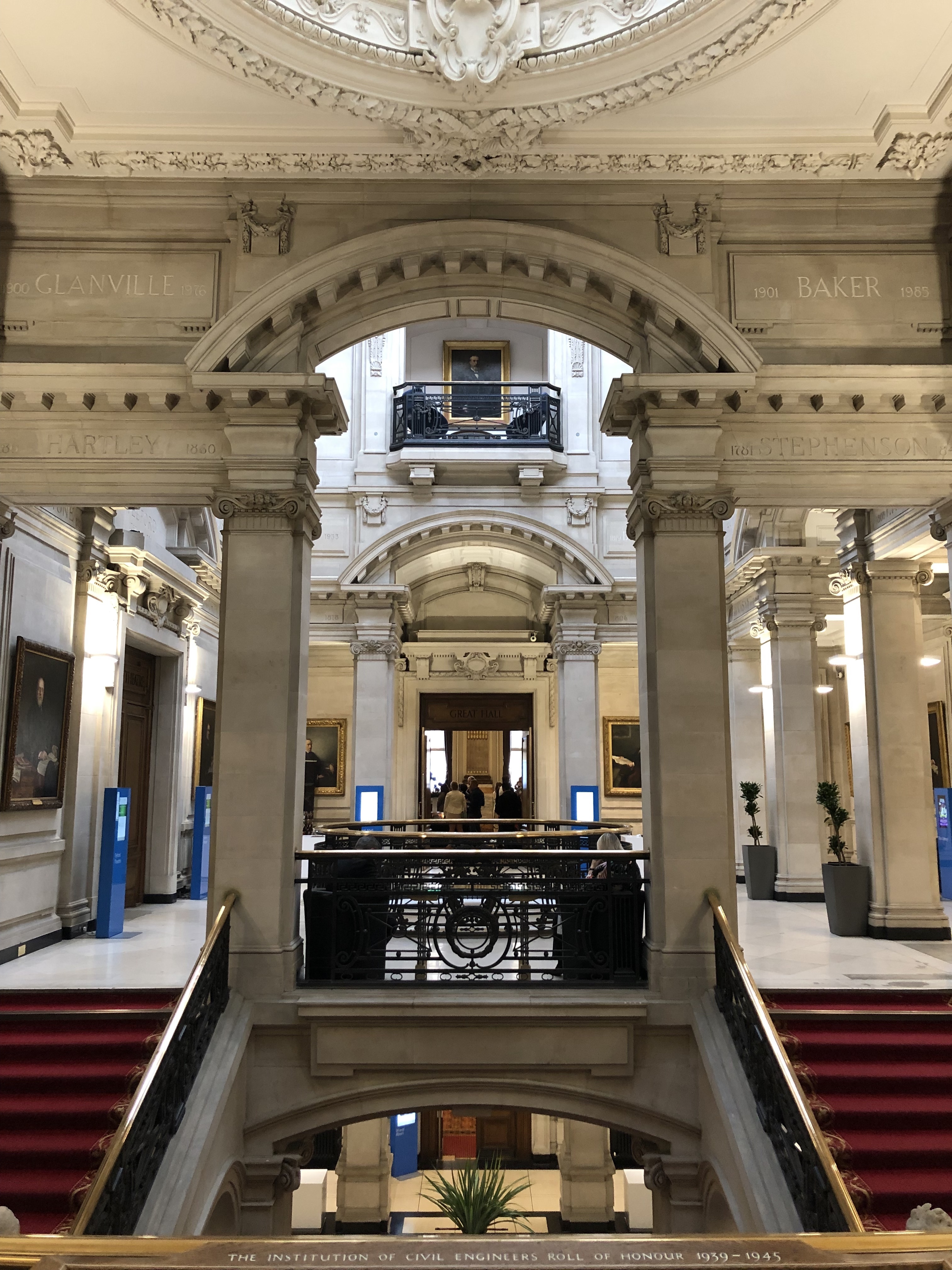
I NLW board members, Margaret de Vos van Steenwijk-Groeneveld and Lysbeth van Valkenburg-Lely were participants during this meeting. At the impressive Institute of Civil Engineers, we were present at the opening by Hakima El Haité, President of Liberal International.
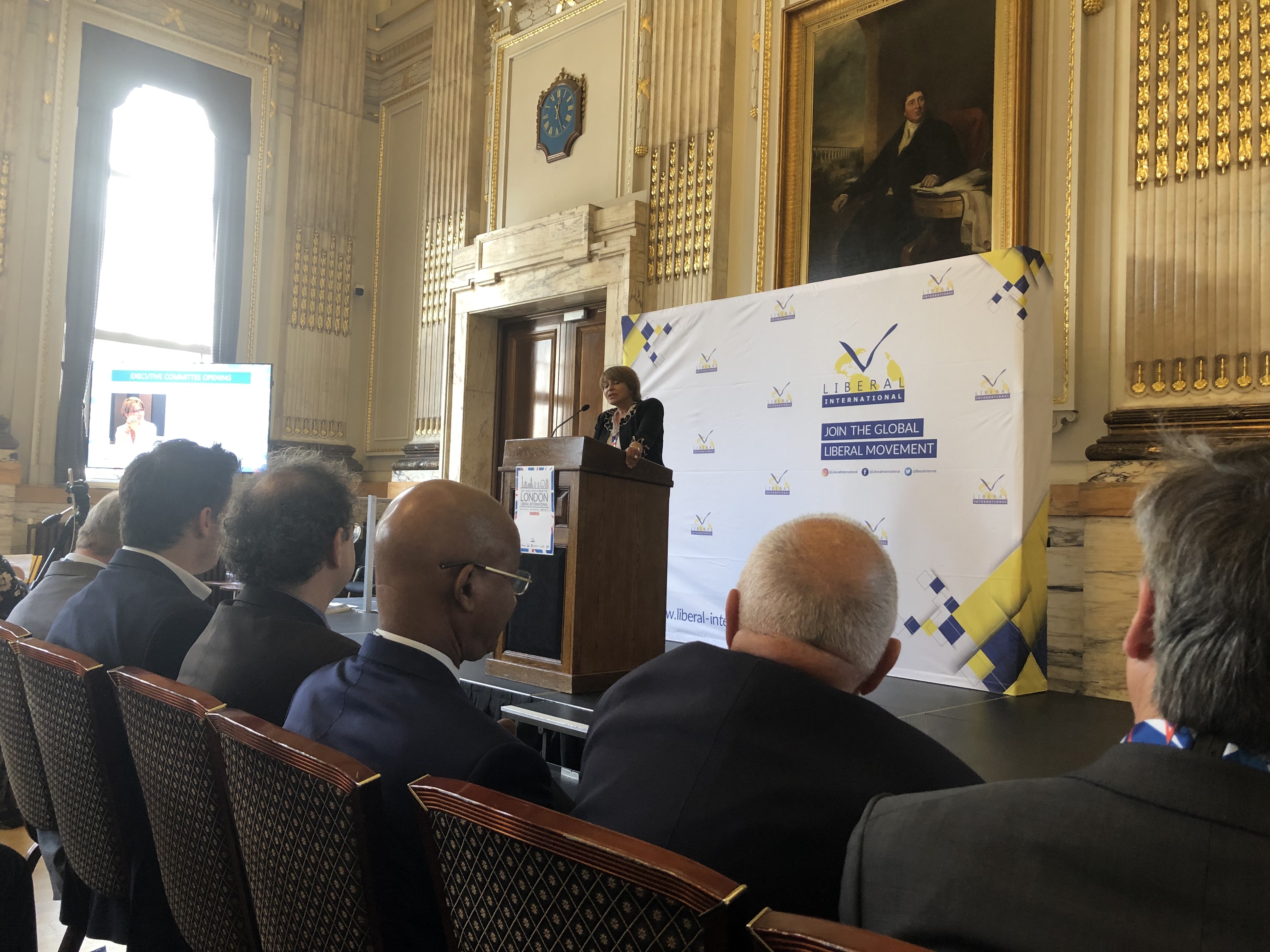
Hakima El Haité gave us food for thought; “the importance to fight for freedom and for climate justice all over the world is a new challenge for all of us. We must reform our organization into a movement and help each other. People from all over who believe in our values and our constitution are very welcome”’ The partnership in the programmes of VVD, ALDE, FNF and our friends in SENEGAL will enhance to build Liberal International and make our values a daily reality. “Reactive, responsive and aggressive are the words for our communication. Good communication is a tool to democracy and our values and a weapon to answer populism. Share our activities via phone and other means”.
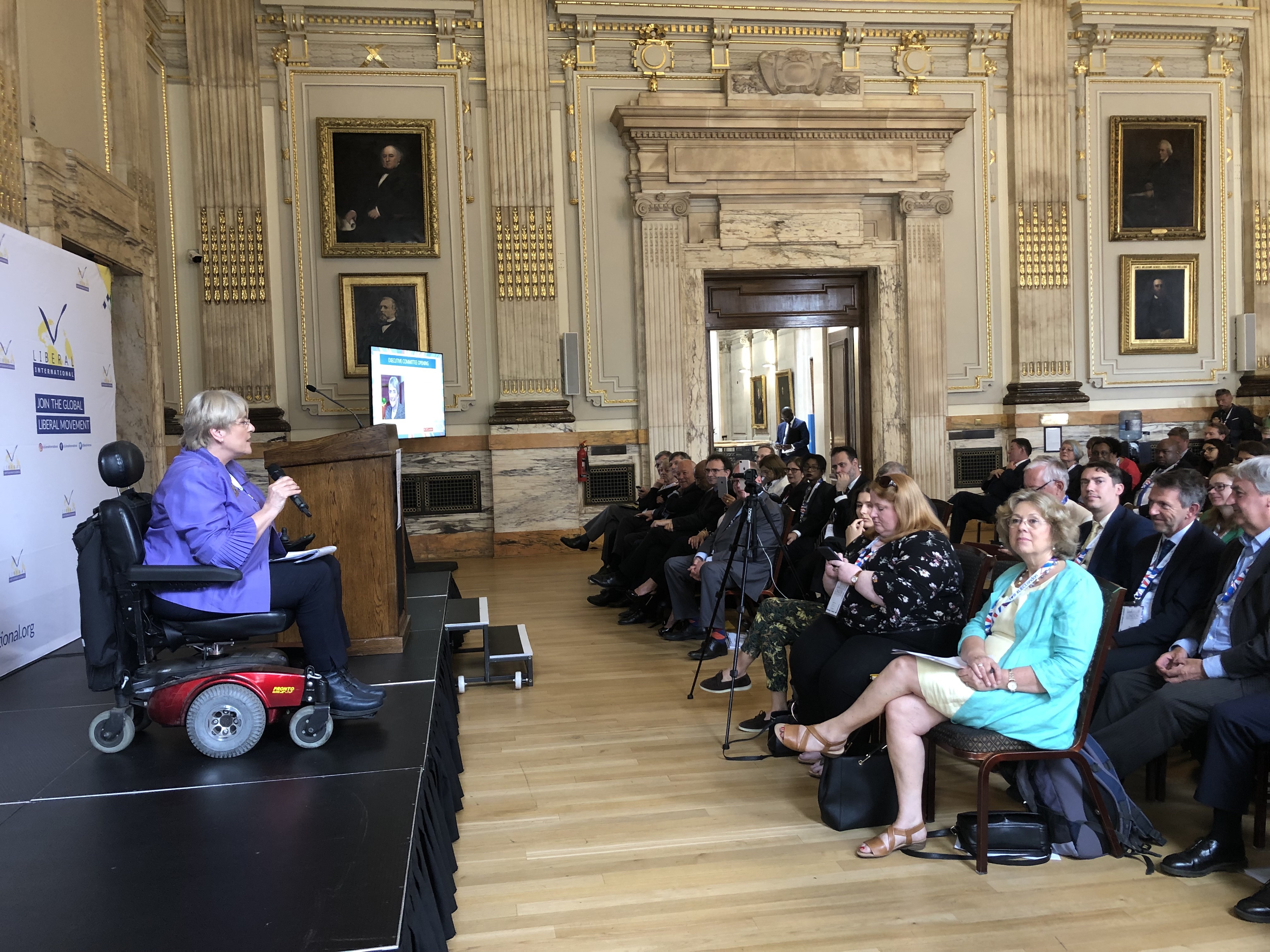
Hans van Baalen gave us some positive news about the new group of President Macron in the European Parliament. The cooperation between the liberal parties is going well. Alde will remain member of LI. “We Liberals must give our own story ‘. ALDE together with the new group of Macron, “En March” now form the group “Renew Europe” and together we have 108 seats in the European Parliament.
Rt. Hon. Baroness Sal Brinton, President of Liberal Democrats, underlined the importance of our liberal values and possibilities for responsibility in government. “We must all fight like a liberal . We have the courage of our convictions. We are talking about new politics where the Lib.Dem might be leading in government”
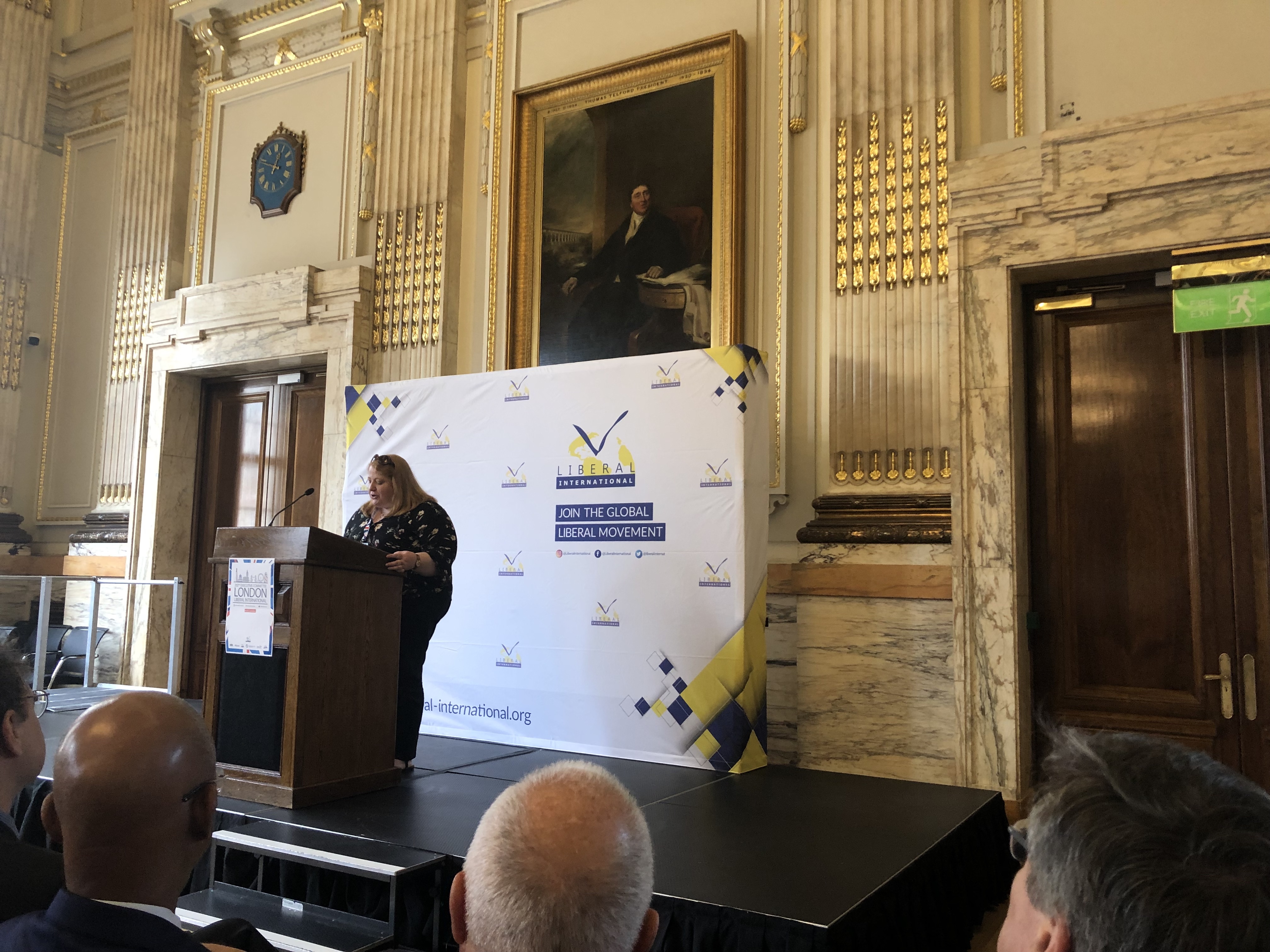
Ms Naomi Long, MEP & Leader of Alliance Party of Northern Ireland. “Liberals lead the way in gender equality and gender balance. More women must get more involved, as that could be part of the solution of several problems. Brexit is a huge problem for Northern Ireland and the result of English nationalism. This crisis can break up the UK. Scotland and Ireland want to stay in the EU.
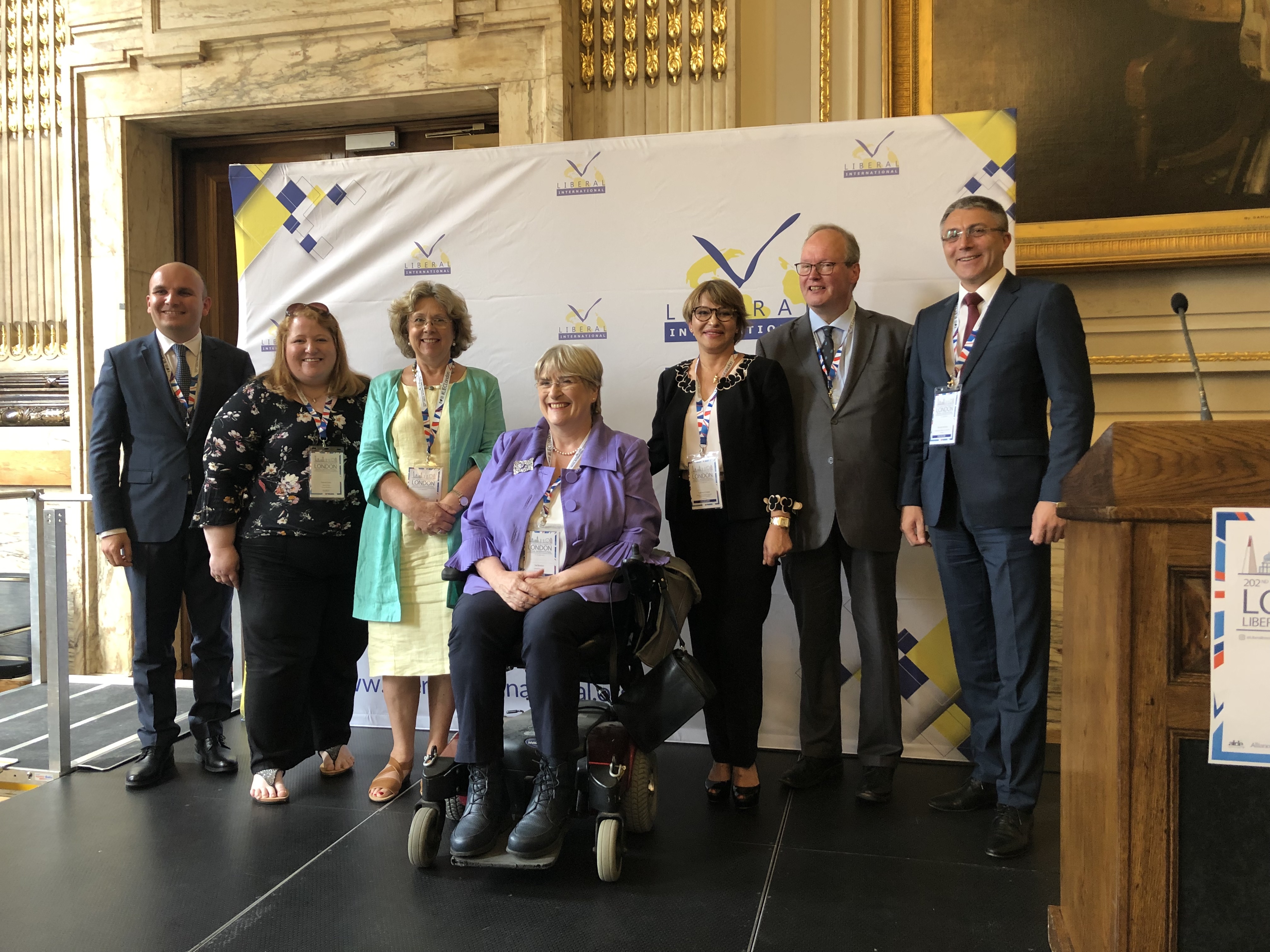
Nationalism is part of the problem. But:
• We must go for prosperity, progress and hope. Nationalism ignores that progress can better the world.
• We must fight for our values, that makes it difficult to be a liberal.
• Clean and consistent communication. Populism simplifies everything.
Most people don’t have time to wrestle with complex difficulties; we must communicate better and therein we can learn from populists. People must see benefit, so we must demonstrate delivering our promises”.
Rt.Hon. Baroness Lindsay Northover, President of the British Group of Liberal International. “All changes are a challenge, unfortunately the British are so divided about Brexit. These complex challenges we must tackle together. Climate change and migration cannot be defeated in isolation. UK will weaken by leaving the EU. We pushed the EU away”.
During the afternoon we attended one of the political sessions. The theme was “Europe Better In or Out?” The moderator was Annemie Neyts-Uyttebroeck, President of Honour of LI.
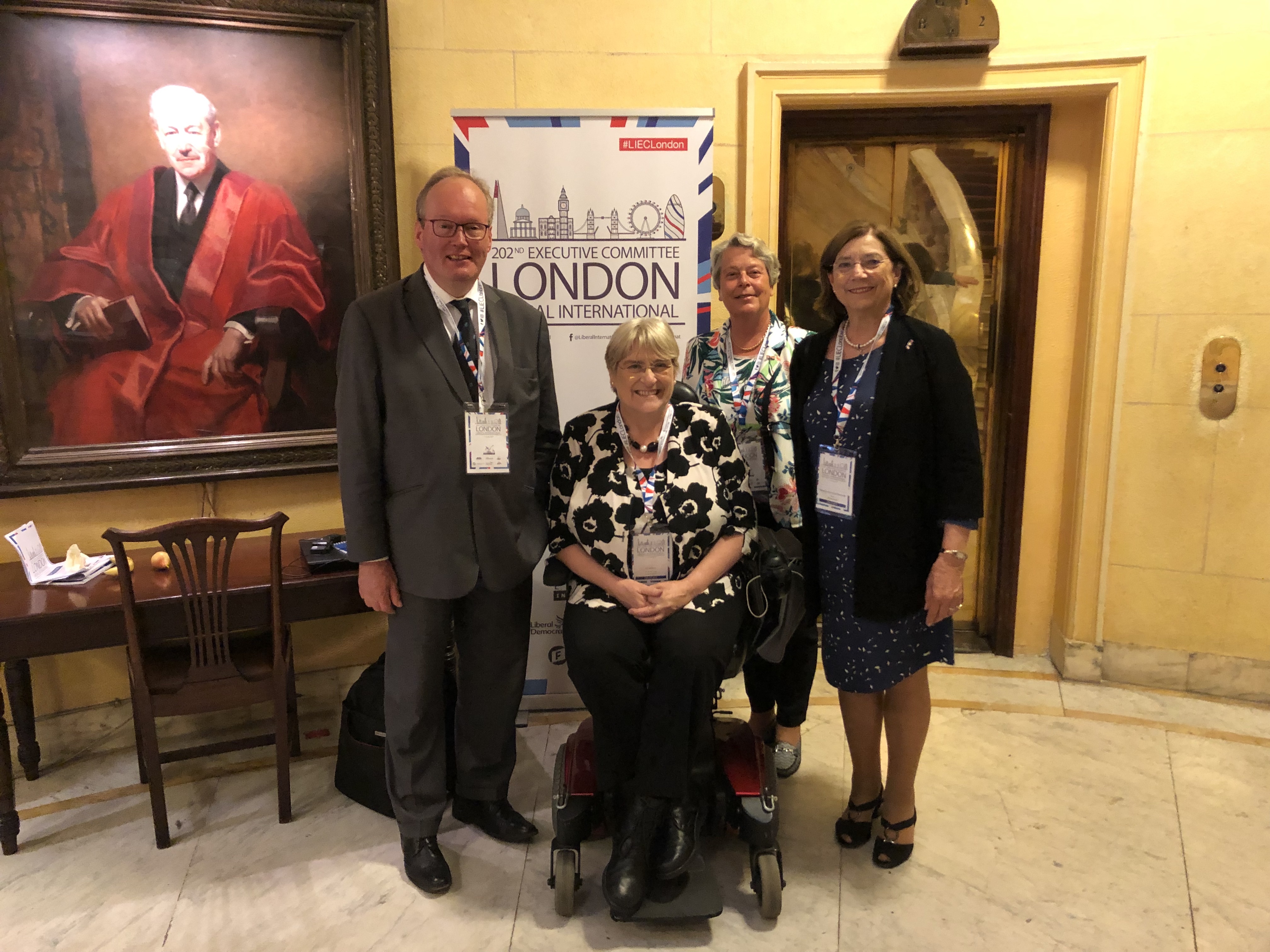
Hans van Baalen, President of ALDE party, gave some more details about the EU parliament. The rule of law, freedom of press, no exceptions and the Lisbon treaty are still valid in the EU parliament. The EU is functioning well.
Mr. Ümit Yalcin, ambassador of the Republic of Turkey, Turkey still wants to become a member of the EU. Perhaps that is better than Turkey going in the wrong direction, that was his question to the liberals to think about.
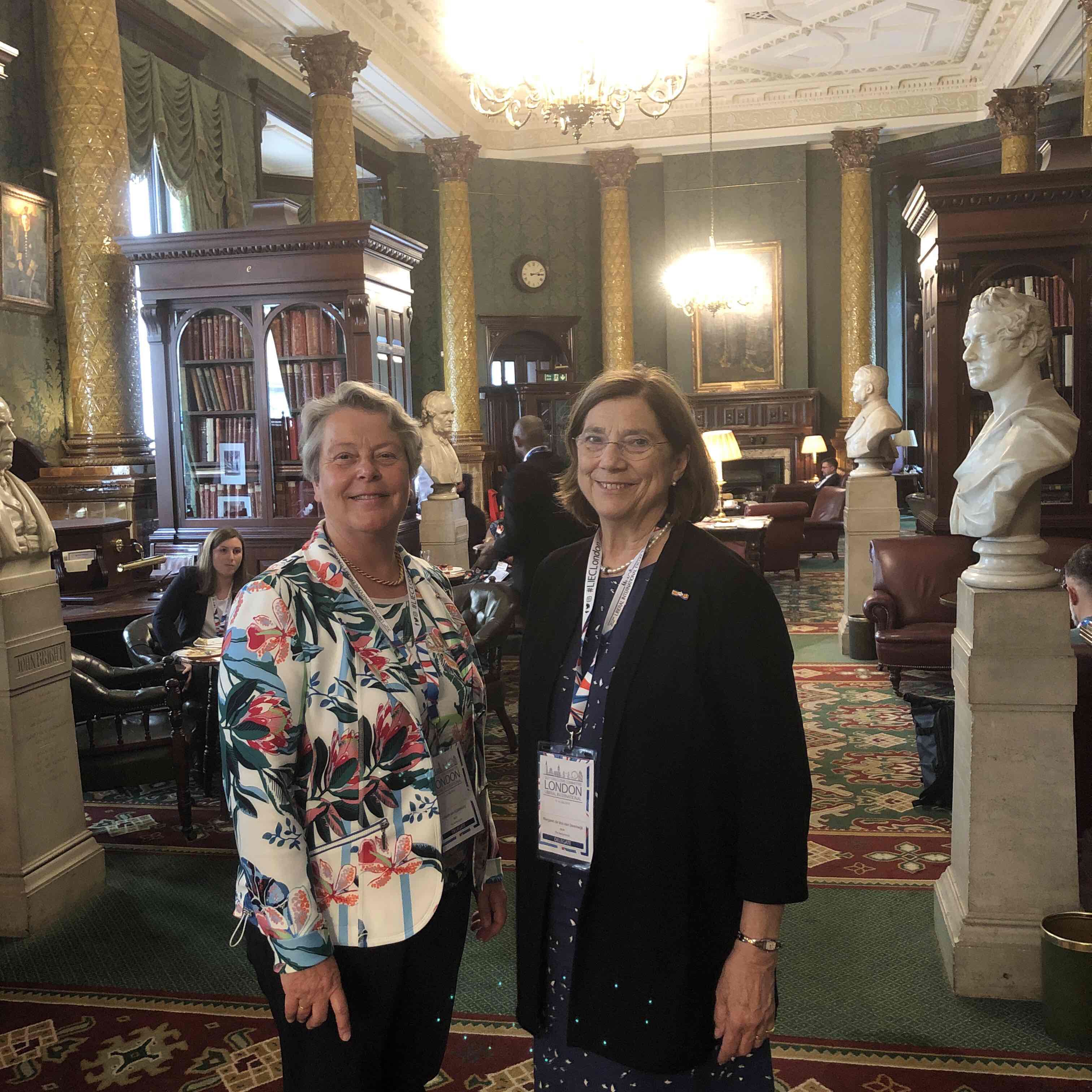
Ms. Trine Skei Grande, Minister of Culture & Gender equality, Venstre Norway. A system with only 2 parties gives the wrong challenge. Democracy means that small minorities are also to be heard not only the majority. That is not possible in a 2-party system. Structure builds the small countries. Trade is important but must combine with climate change. The Young vote for the climate. Problems: We find strong pollution in the seas and a fast-growing China. The change in our climate causes us to get more refugees and more problems. In Europe we are caught between Trump and China. In the Council of Europe cooperation with all countries is the future. It’s important that rules and the rule of Law must work.
Some more remarks were made by the speakers: The EU makes rules, but those rules are not always above the laws in Britain, but Britain must reform. Turkey is a neighbor and member of NATO. Political reform according to Hans van Baalen could help reform China to become a democracy.
The next day we were welcome at the National Liberal Club, established by Liberal Minister William Ewart Gladstone in 1882, home to the headquarters of Liberal International.
In this political session the theme was “Defending the Democratic Space”. Moderator was Astrid Thors, LI vice-president of LI.
Will Moy, director of Full Fact, gave us some ideas: we must get improvement of public information, trustworthy information. Elections – outsourcing transparency of content. For internet companies, it would be good to make better legislation.
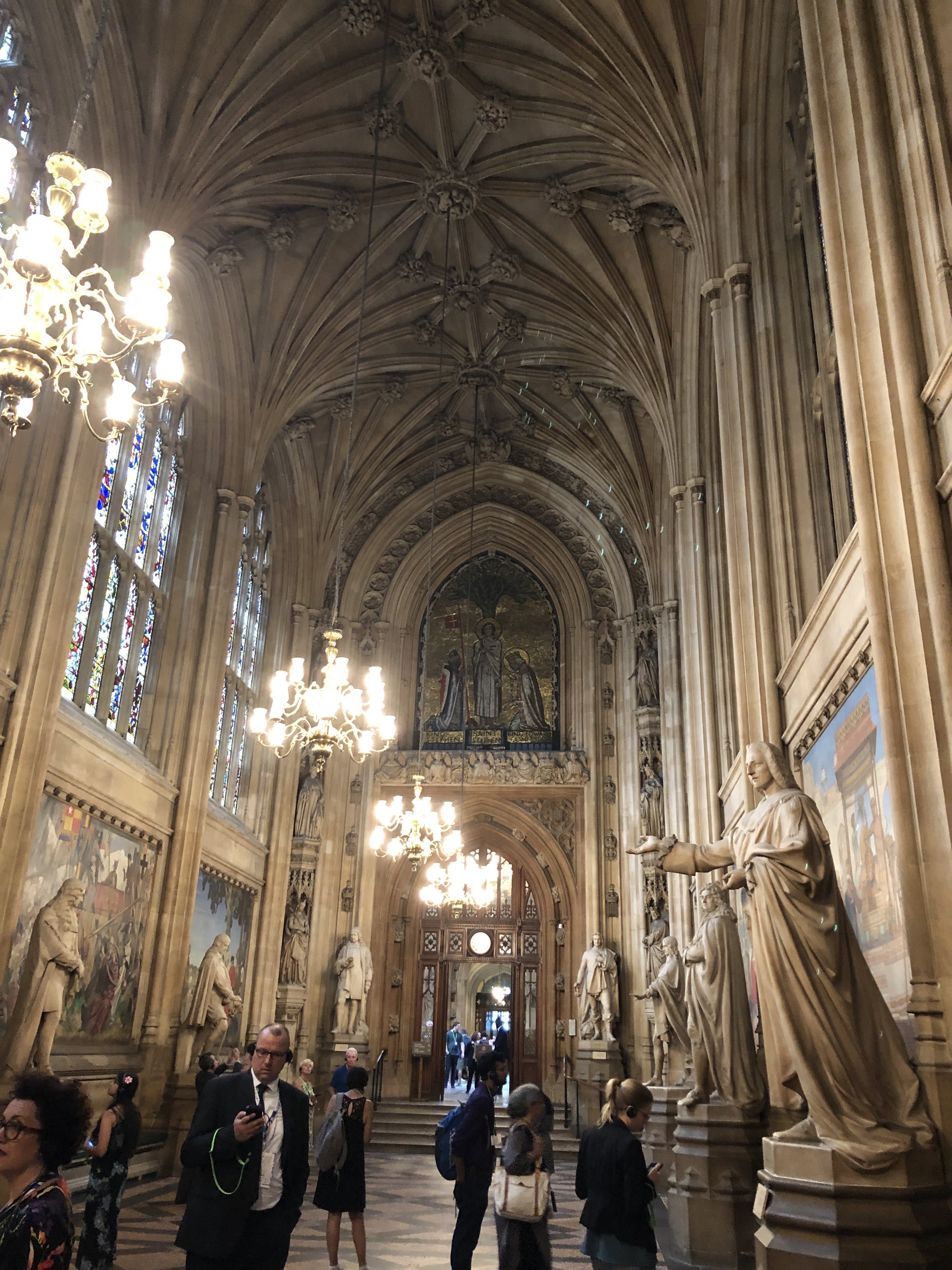
Politicians are often using false information,
- some as a standard,
- some as personal data as campaign,
- some use it just to kick up dust, undermining democracy. Politicians respond to this.
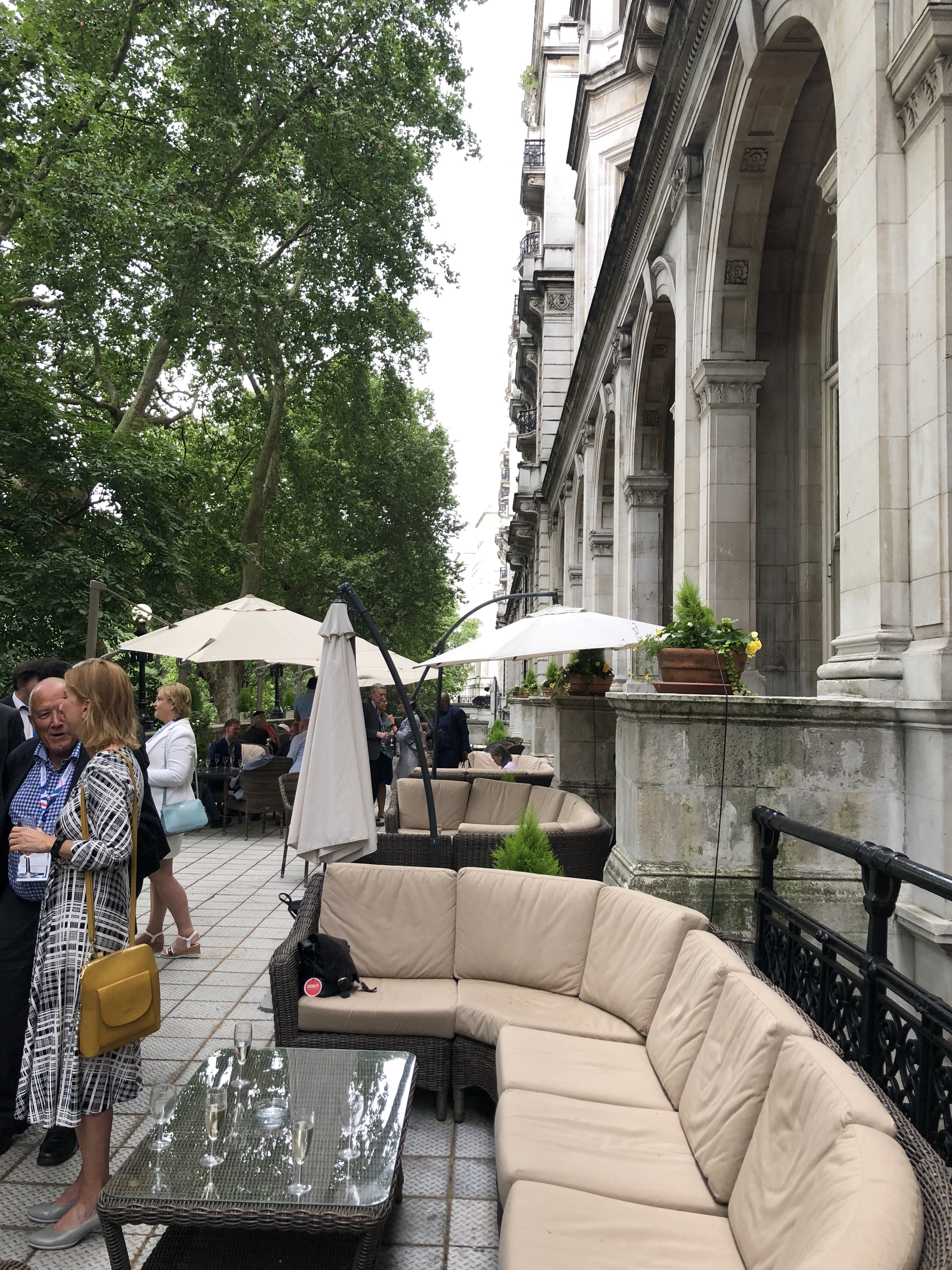
Education is important to understand new technical skills and to develop awareness of information. We need new laws on how to work with this new tech. Legislation though is not the solution. How we choose to behave in politics and in civil society is! We must promote good examples. Remember 5 years ago, is different from now – for elections be aware of that!!
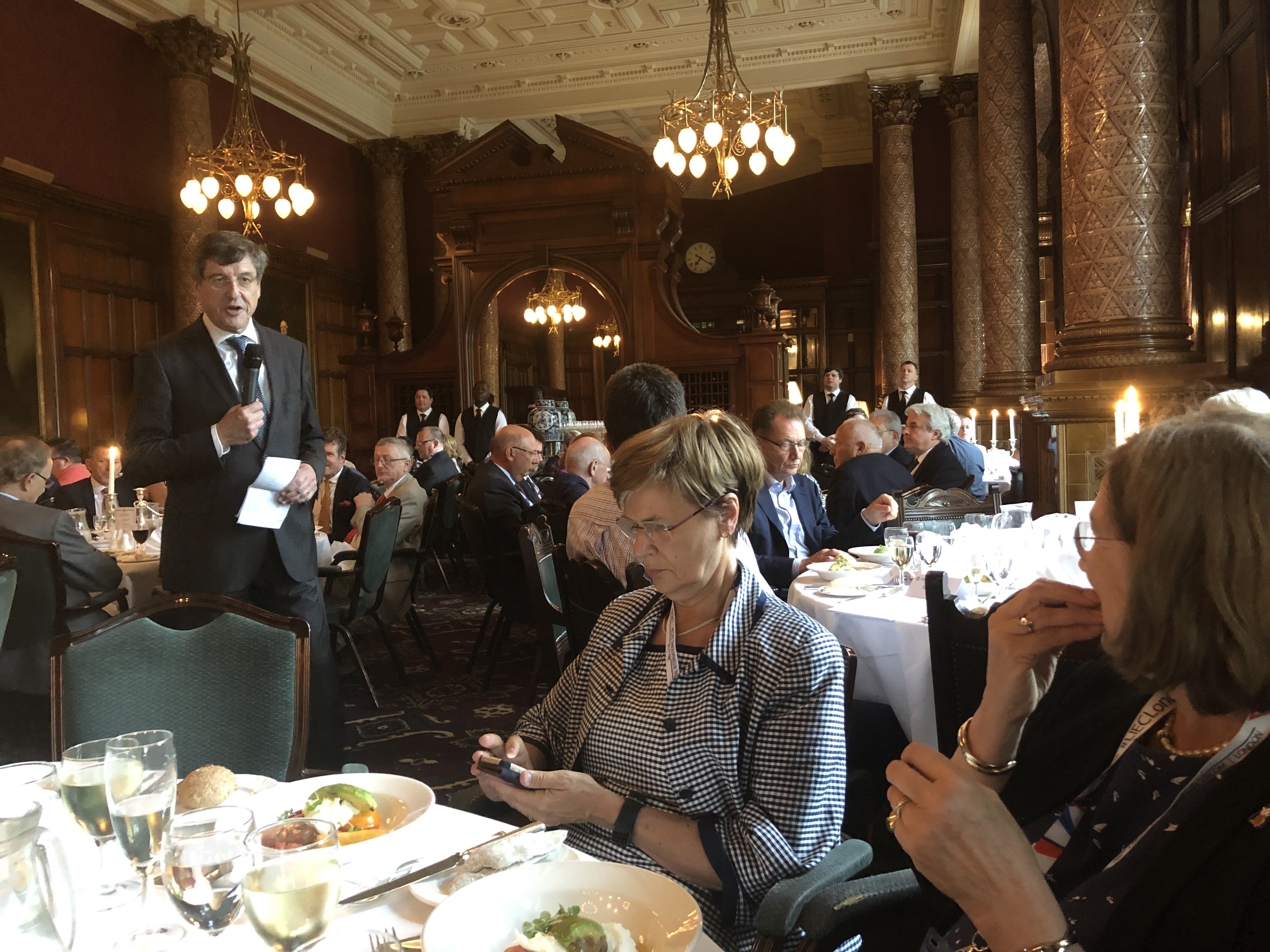
During the lunch period participants were able to visit both the Houses of Parliament.
In the evening the farewell dinner was given in the dining room of the National Liberal Club. We were welcomed by Karl-Heinze Paqué, deputy president of LI.
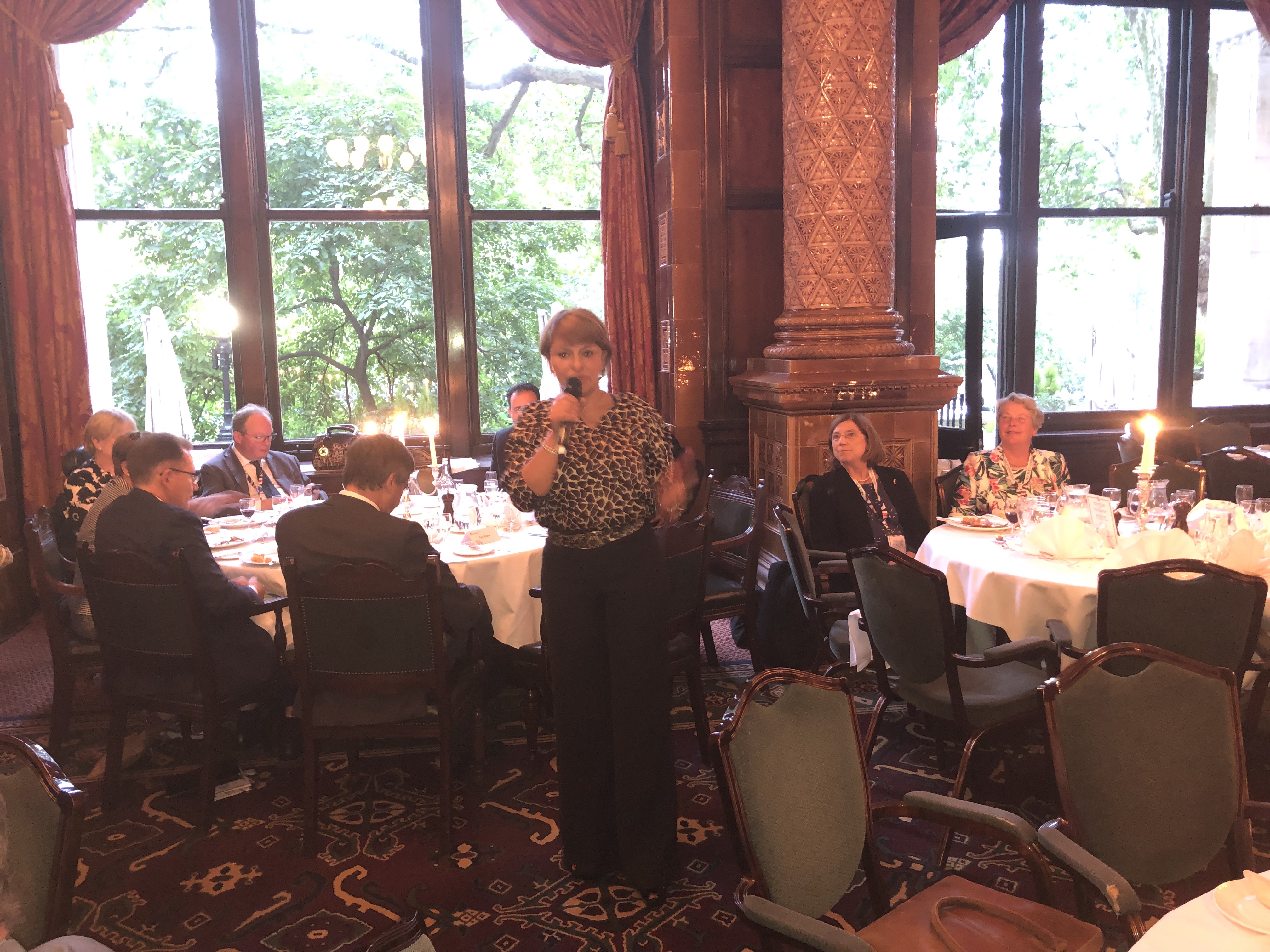
President Hakima el Haité wished us already a warm welcome for the next
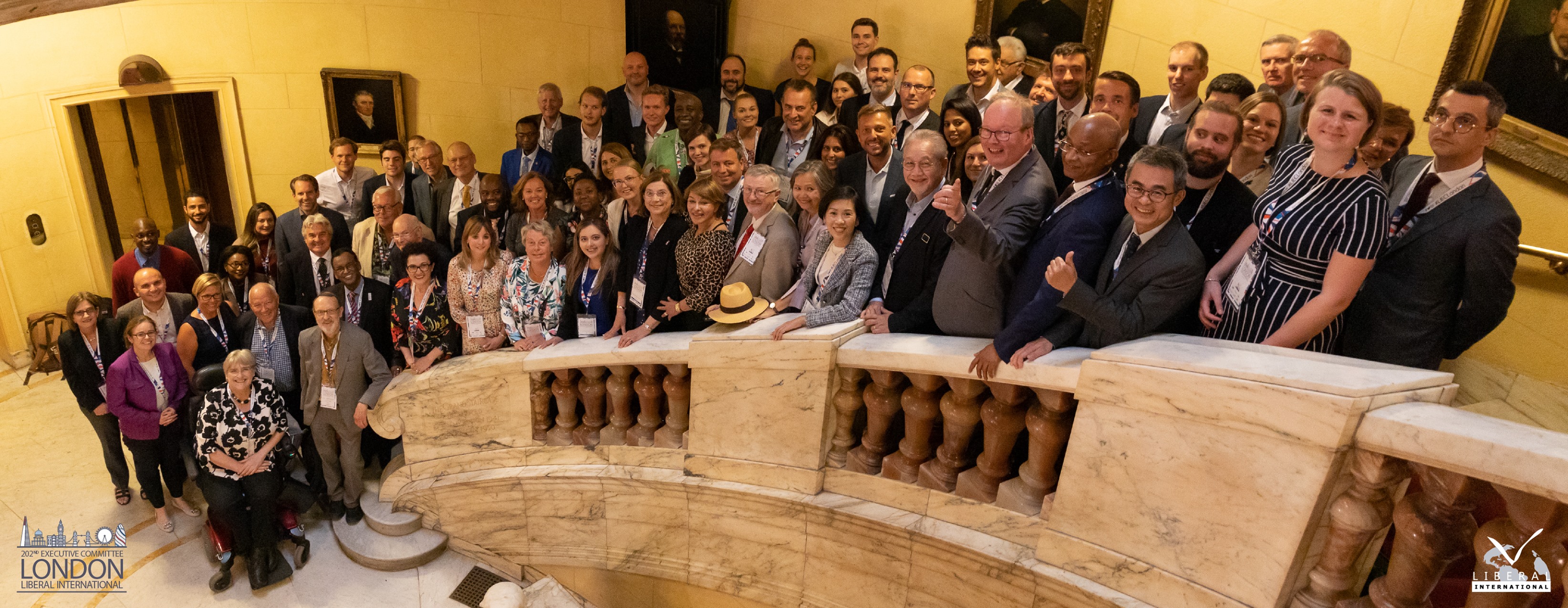
LI exc. Meeting which will be held in Morocco in November 2019.
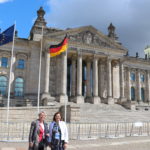
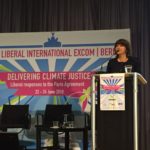 The Committee meeting gave us many discussions about climate change. What is the Liberal response to the Paris Agreement of Delivering Climate justice? The INLW former deputy -president Hakima El Haiti gave an inspiring speech about the importance of climate change and the effects for people all over the world.
The Committee meeting gave us many discussions about climate change. What is the Liberal response to the Paris Agreement of Delivering Climate justice? The INLW former deputy -president Hakima El Haiti gave an inspiring speech about the importance of climate change and the effects for people all over the world.
Climate change touches everyone and it has a lot of influence on the economy. Certainly, when parts of the world sustain severe periods of drought. Many countries especially in Africa have a lack of means if they get drought and thus no crop. Young women are very vulnerable for these effects. Often, they can no longer go to school because all must work and help to get water from elsewhere. These climate problems make people want to migrate. These problems must be solved. In 2015 the world agreed on acting on this problem. The sustainable agenda and the Paris agreement were agreed on by nearly all countries.
[read more=”Read more” less=”Read less”]
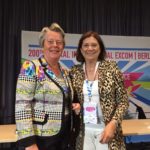 The change is foremost a mindset problem. More education is one of the important issues. Politicians cannot do this alone, they must work together and make green investments and adjust education to make people more aware of these developments. Governments, political parties and the UN must make this change together. Climate change and human rights, peace and security are all linked. Although the USA is not agreeable to this issue, we do still see that some of the states such as California are agreeing to the Paris Agreement and working on it.
The change is foremost a mindset problem. More education is one of the important issues. Politicians cannot do this alone, they must work together and make green investments and adjust education to make people more aware of these developments. Governments, political parties and the UN must make this change together. Climate change and human rights, peace and security are all linked. Although the USA is not agreeable to this issue, we do still see that some of the states such as California are agreeing to the Paris Agreement and working on it.
Europe must work on it not only because it is so important for the next generation but also Europe doesn’t want all the migration coming its way so education, health care and transport must be worked on in the migration countries. For the politicians the problem is that some, mostly populists, go on saying that there is no climate change as for example president Trump says. Another problem with the populist movements is that everyone wants to be heard and needs results. Populists are using that in their attitude to the electorate. So, politicians must have enough evidence and solid explanations must be given to change political attitudes. Climate change and the attitude to this is all about equality for the world at large and thus climate justice for all.
Another interesting meeting was about Democracy.
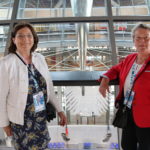
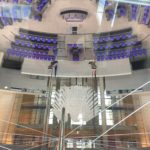
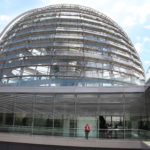 The statement was that democracy is a process. This process can be stopped. Despite the many attacks on democracy Europe is still going and as former president Obama said: The Europe Union is successful and still there after 70 years. An intergovernmental issue is migration. Many populists are choosing nationalism as the best solution for any problem. They tend to say that they want change and are anti-establishment but, they want to establish their own establishment. We must show that the Europe Union is still a very good and solid partnership. We are stronger together and now you can see that leaving the EU is not so easy and will give many economic and other problems. With all the European countries we must go on fighting for freedom, prosperity and a good balance between human rights and responsibility. Europe is a part of the world with many possibilities: good laws, social inclusion, freedom of speech and the possibilities to make your own choices. We must go on fighting for: human rights, freedom and rule of law all over the world.
The statement was that democracy is a process. This process can be stopped. Despite the many attacks on democracy Europe is still going and as former president Obama said: The Europe Union is successful and still there after 70 years. An intergovernmental issue is migration. Many populists are choosing nationalism as the best solution for any problem. They tend to say that they want change and are anti-establishment but, they want to establish their own establishment. We must show that the Europe Union is still a very good and solid partnership. We are stronger together and now you can see that leaving the EU is not so easy and will give many economic and other problems. With all the European countries we must go on fighting for freedom, prosperity and a good balance between human rights and responsibility. Europe is a part of the world with many possibilities: good laws, social inclusion, freedom of speech and the possibilities to make your own choices. We must go on fighting for: human rights, freedom and rule of law all over the world.
Of course, there were some nice visits to make as well.
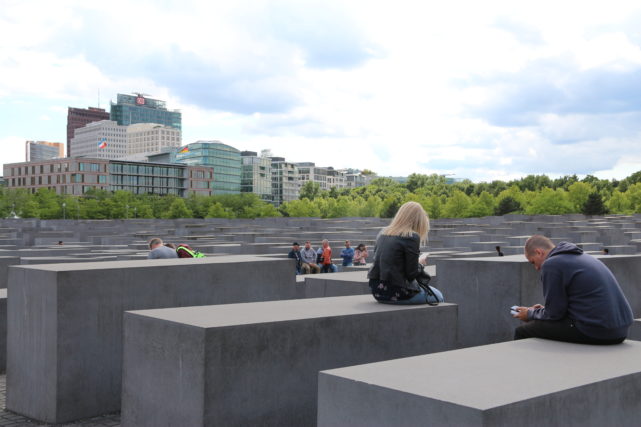 |
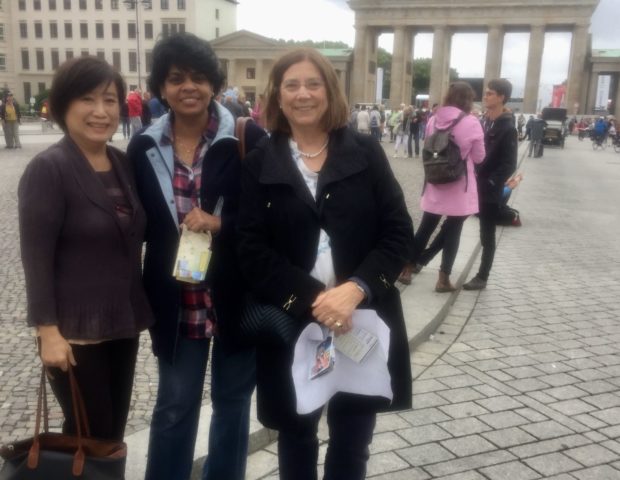 |
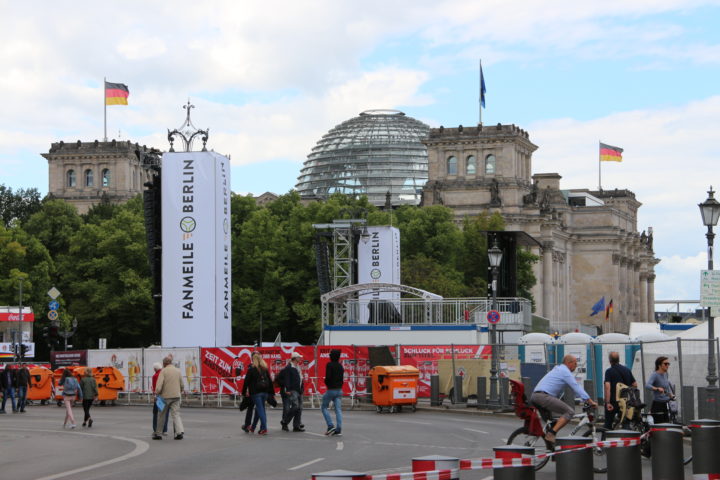 |

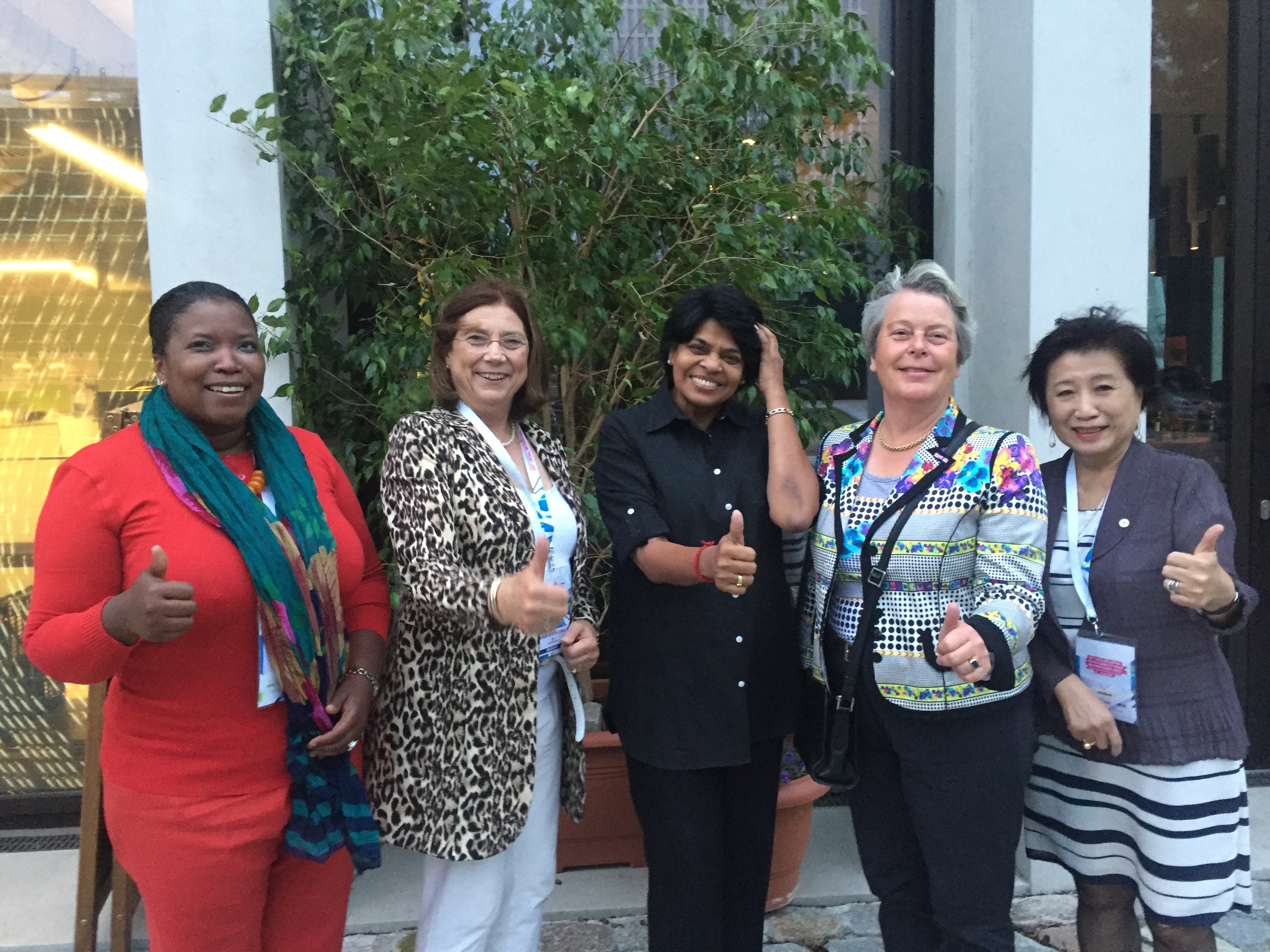 Members of INLW Board: Ruth Richardson, Margaret de Vos, Jayanhti Devi Balaguru, Lysbeth van Valkenburg and Maysing Yang were all present in Berlin.
Members of INLW Board: Ruth Richardson, Margaret de Vos, Jayanhti Devi Balaguru, Lysbeth van Valkenburg and Maysing Yang were all present in Berlin.
[/read]
INLW Board members Margaret de Vos van Steenwijk and Lysbeth van Valkenburg attended the 199th LI ExCom in Johannesburg.
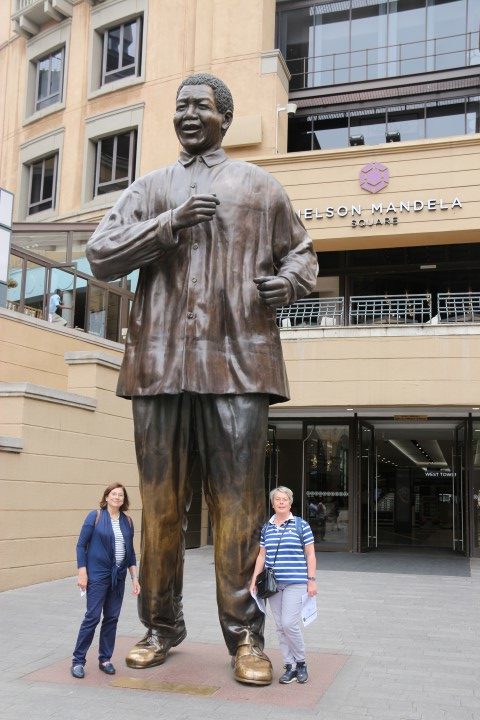 This year the theme of this LI Executive Committee meeting was “Good Governance”. The theme was explored with discussions on “Results of Better governance on different fields of government” and the influence of that on Local and Global Challenges for the 21st Century.
This year the theme of this LI Executive Committee meeting was “Good Governance”. The theme was explored with discussions on “Results of Better governance on different fields of government” and the influence of that on Local and Global Challenges for the 21st Century.
Our host was the Democratic Alliance (DA) and they had taken upon them to produce a draft for a new Johannesburg Declaration. This declaration was discussed and adopted during the last session of the meeting.
The DA was founded in 2000 although its roots go back much longer. DA is supported by liberals to the right and left depending on the subject. DA is in power in 33 cities now, among them Cape town, Tshwane (Pretoria), Nelson Mandela Metropolitan Bay (Port Elizabeth) and Johannesburg. In 2018 there will be Presidential elections. President Jacob Zuma will have had two terms by then. DA leader Mmusi Maimane has started to present DA as an alternative for the ANC. In the beginning of 2018 Maimane will have to be re-elected and as such will be the DA candidate for President during the next elections, where he will hopefully be seen as an alternative for the ANC candidate.
[read more=”Read more” less=”Read less”]
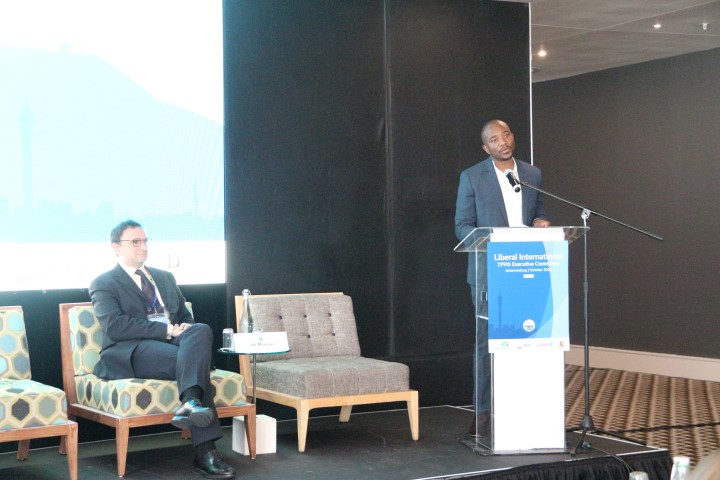 Our other host was the Friedrich Naumann Foundation for Freedom (FNF). FNF works throughout the world in over 50 countries to promote human rights, the rule of law, democracy and the principle of a free market economy. The Foundation has been in Africa since 1963, and has its Sub-Saharan African headquarters in Johannesburg.
Our other host was the Friedrich Naumann Foundation for Freedom (FNF). FNF works throughout the world in over 50 countries to promote human rights, the rule of law, democracy and the principle of a free market economy. The Foundation has been in Africa since 1963, and has its Sub-Saharan African headquarters in Johannesburg.
For us INLW, it was also interesting to meet 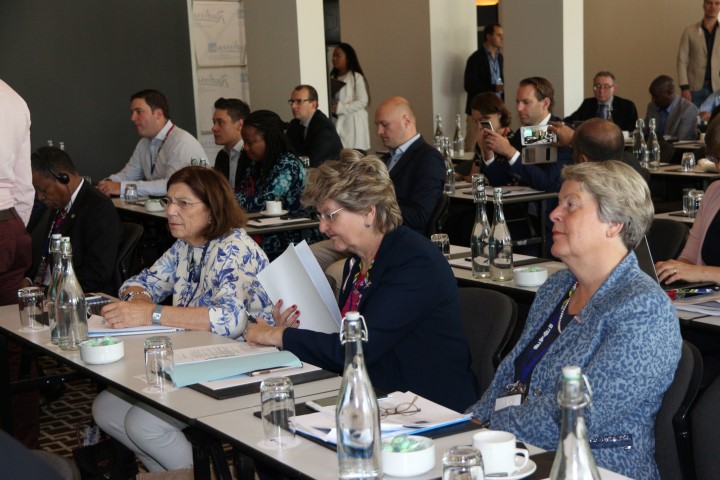 members of DAWN, Democratic Alliance Women’s Network. DAWN seeks to address the core issues affecting women and aims to empower women and create a society where dignity of women is recognized. DAWN seeks to combat and address: Rape and Domestic Violence, Maintenance issues, Responsible Parenting, Economic Empowerment and the Recognition of Women’s Rights as Human Rights by concentrating especially on customary law, constitutional law, patriarchy, tribal law and maintenance of families by fathers. In South Africa the educational changes for girls are still inferior to the education for boys. In the rural area’s apartheid is
members of DAWN, Democratic Alliance Women’s Network. DAWN seeks to address the core issues affecting women and aims to empower women and create a society where dignity of women is recognized. DAWN seeks to combat and address: Rape and Domestic Violence, Maintenance issues, Responsible Parenting, Economic Empowerment and the Recognition of Women’s Rights as Human Rights by concentrating especially on customary law, constitutional law, patriarchy, tribal law and maintenance of families by fathers. In South Africa the educational changes for girls are still inferior to the education for boys. In the rural area’s apartheid is 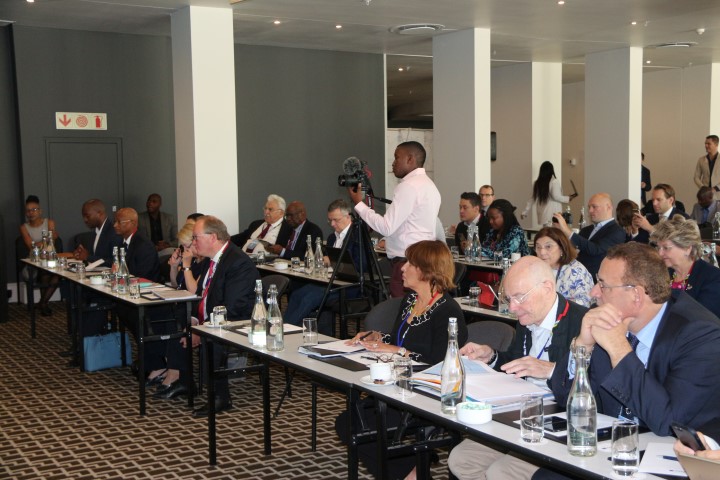 still feared and violence against women and girls such as rape is a big risk. A woman must leave her house once she becomes a widow. All these elements make it a slow process to make life better and to improve the education possibilities for girls.
still feared and violence against women and girls such as rape is a big risk. A woman must leave her house once she becomes a widow. All these elements make it a slow process to make life better and to improve the education possibilities for girls.
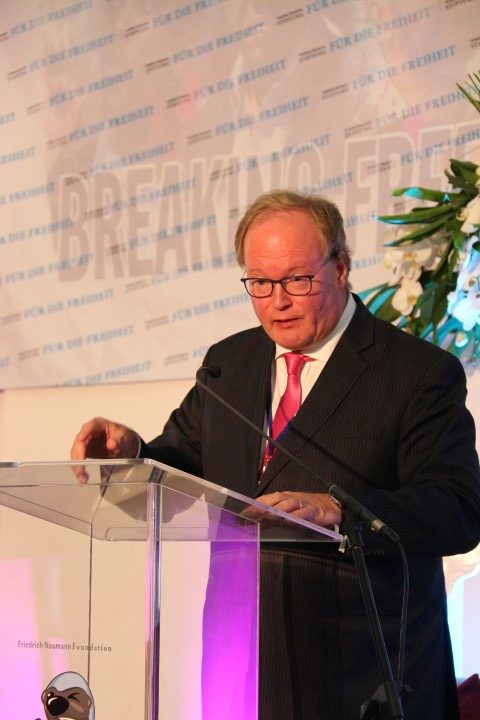
On Friday the theme of good governance was discussed. With good governance and the right institutions, a country has the means to develop itself and its people. You can only reach sustainable development by a transparent and trustworthy government. Sustainability, anti-corruption steps, transparency, inclusiveness, rule of law and independent justice will ultimately bring equal opportunities, equal education and equal innovation for a country.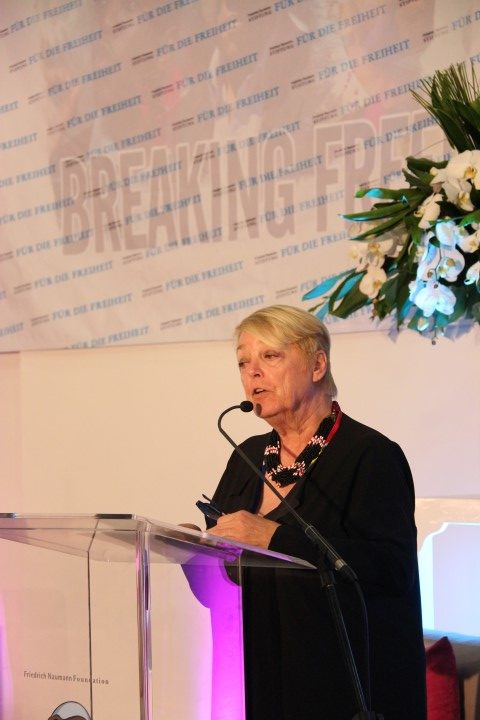
During lunch there was the opportunity to hear the country reports. The Brexit was widely discussed at our table among others with Sal Brinton who is a member of the House of Lords and president of the Liberal Democrats. Brexit will have an enormous impact in Great Britain and Europe.
The discussion in the afternoon panel gave us food for thought about “What is social equality in liberal terms?”
- Equality before the law;
- Guarantee the same opportunities, the same starting point to develop the potential of the individual and second chances.
- Inclusive social security, there must be social securities for all;
- Equal education for all children without discrimination;
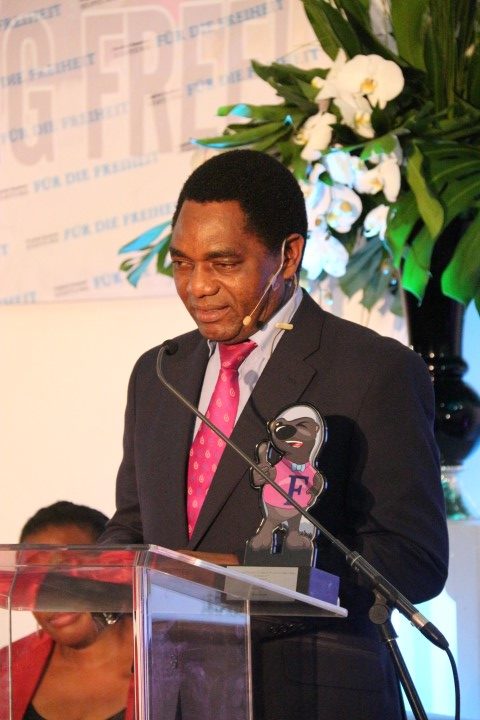 During the administrative session of the LI Ex Com INLW’s resolution “More Women in local regional, national and international policy making for Good Governance Worldwide” was adopted. Read on.
During the administrative session of the LI Ex Com INLW’s resolution “More Women in local regional, national and international policy making for Good Governance Worldwide” was adopted. Read on.
Friday evening brought us to Sophiatown the MIX in Johannesburg, a historical black cultural hub that was destroyed under apartheid and then rebuilt. During the event the annual African Freedom Speech and Award Ceremony was held. The Zambian opposition leader, Hakainde Hichilema, who spent time in prison for his beliefs, was given the award for his extraordinary contribution to the cause of Freedom in Africa.
On the Saturday morning several visits were paid to important places in Johannesburg such as Apartheid Museum, Constitution Hill, Inner city tour.
The panel discussion in the afternoon was about Better Governance: Liberal Answers to Twenty-First Century Challenges.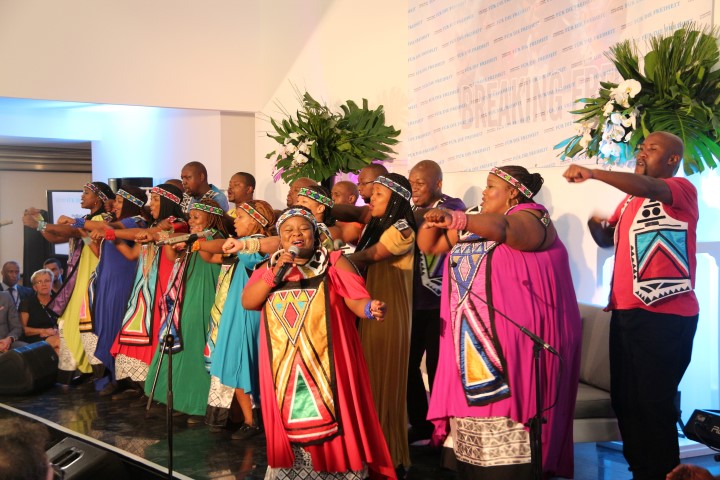 The panel was with the former Prime Minister of Guinea, Cellou Dalein Diallo, the national leader of AND, Edgard Razafindravahy from Madagascar; the Mayor of Johannesburg, Herman Mashaba, Solly Msimanga, Mayor of Tshwane (Pretoria). The discussion was led by our President of LI, Juli Minoves.
The panel was with the former Prime Minister of Guinea, Cellou Dalein Diallo, the national leader of AND, Edgard Razafindravahy from Madagascar; the Mayor of Johannesburg, Herman Mashaba, Solly Msimanga, Mayor of Tshwane (Pretoria). The discussion was led by our President of LI, Juli Minoves.
For South Africa teaching people in citizenship is important. Too many people need the government, there is too much dependency. Civil society must take the power back from the government and improve the government.
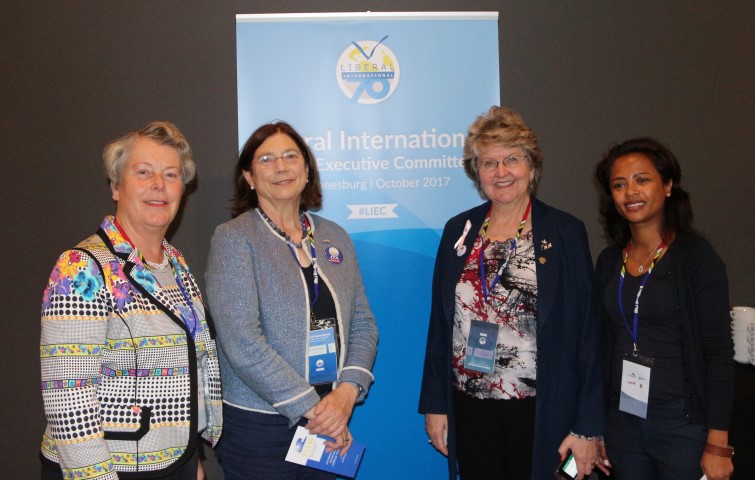 You cannot talk about freedom if you don’t get people to act honestly, there is still too much corruption in this country.
You cannot talk about freedom if you don’t get people to act honestly, there is still too much corruption in this country.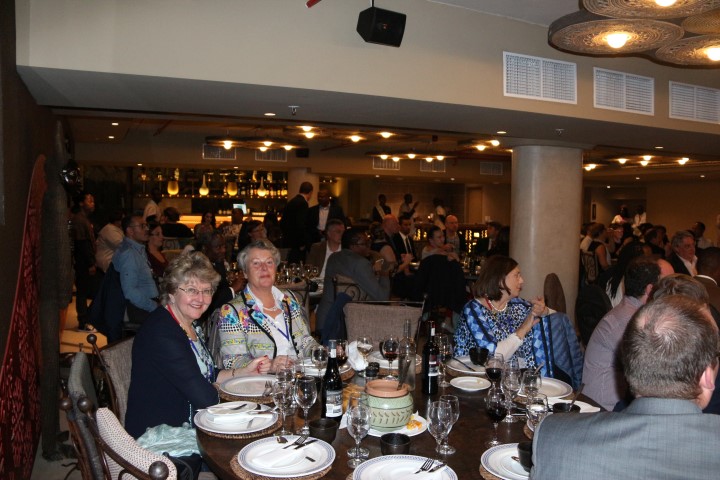
The conclusions were:
Liberal values to be defended, get people to gain control and adapt faster to new developments and show that good governance makes a difference to people’s lives. A big problem is that in SA 60% of the 25% unemployed are youngsters.
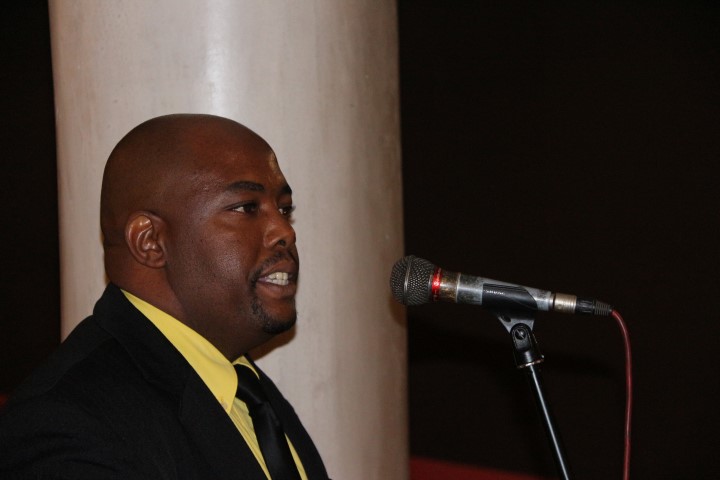 Herman Mashaba told us that in his position he tries to work on the corruption, don’t tell lies, get children educated and transform the townships into suburbs with nice tree lined streets and parks. There is a lot to do for any government in SA.
Herman Mashaba told us that in his position he tries to work on the corruption, don’t tell lies, get children educated and transform the townships into suburbs with nice tree lined streets and parks. There is a lot to do for any government in SA.
We finished the Executive Meeting with the adoption of the Johannesburg Declaration.
At the closure of the meeting on Saturday evening the Mayor of Midvaal hosted us in Restaurant Moyo in Johannesburg where we had an authentic African experience, inspired by traditions and values from across the African continent.
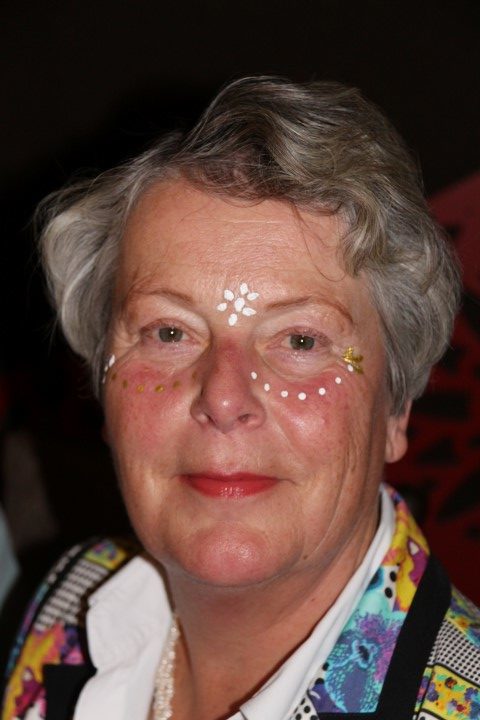
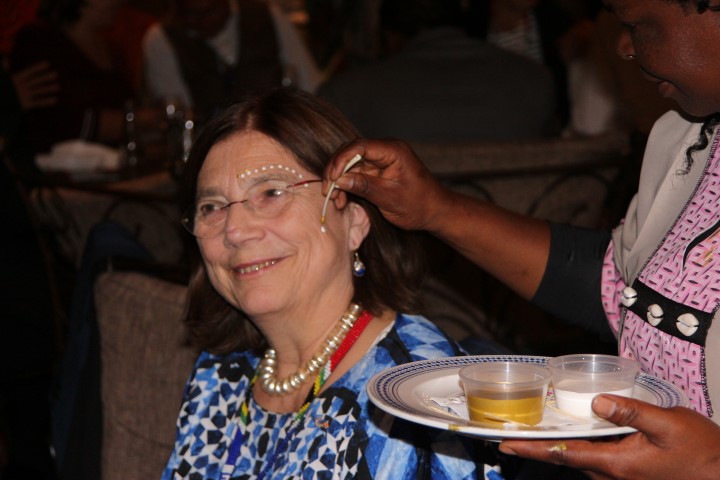
[/read]
Resolution number: 03
Title: Child Abuse
Submitted by: INLW (International Network of Liberal Women)
The Congress of Liberal International, convened in Andorra, on 20 May 2017
Noting that:
World Health Organization (WHO), distinguishes four types of child maltreatment: physical abuse; sexual abuse; neglect and negligent treatment; emotional abuse; and exploitation
Child abuse can result in immediate adverse physical effects but it is also strongly associated with developmental problems and with many chronic physical and psychological effects, including
subsequent ill-health, including higher rates of chronic conditions, high-risk health behaviours and shortened lifespan.
The Convention on the Rights of the Child (UNCRC), of which Article 19 calls on all political parties to take all appropriate legislative, administrative, social and educational measures to protect the child from all forms of physical or mental violence, injury or abuse, neglect or negligent treatment, maltreatment or exploitation, including sexual abuse, while in the care of parent(s), legal guardian(s) or any other person who has the care of the child.
Child maltreatment is a global problem with serious life-long consequences
Despite recent national surveys in several low- and middle-income countries, data from many countries are still lacking
Considering it:
Worldwide because Child abuse occurs irrespective of gender, social standing, ethnicity, or religion. International child abuse statistics are difficult to come by due to the difficulty in keeping track of numbers and the hidden nature of some forms of abuse even in “financially sound” countries. Even though many countries keep no or inadequate records, politics are not doing enough. This is why we must raise awareness of the negative impact that violence and abuse have on women and children and rid society of abuse permanently.
Worldwide… because violence against children takes many forms, including physical, sexual, and emotional abuse, and may involve neglect or deprivation. Violence occurs in many settings, including the home, school, community and over the Internet.
Worldwide…because thousands or refugee children are being abused exploited and arbitrarily detained.
Worldwide…because in many countries children are used as target for emotional abuse and of neglect. Is known that child abuse happens constantly in war zones, in schools and in child marketing.
Worldwide…because child abuse happens in advertising, the food and beverage industry is marketing our children and youth to sickness or even death
The nature of international communication means that abuse occurs across international borders.
Calls on upon member parties and other liberal organizations to urge their governments around the world to bring this issue to attention: Raise the alert and protect our future generations from ritual and sexual abuse.
Pay special attention to and raise the awareness of child abuse in war zones.
Draw attention to child abuse in schools.
Let political parties intervene and put an end to inappropriate marketing to children
Draw attention to children used as targets such as in Europe, Syria, Iraq, Africa and other countries.
Non-profit agencies should work together in seeking funding that supports preventive effort.
Partner with national experts who can collect data to build the evidence base. Make use of data to demonstrate the need for increased funding for prevention programs.
Political parties to focus on the issue “child abuse” and keep it on the political agenda. WHO’s and International Society for Prevention of Child Abuse and Neglect (ISPCAN) Campaign on preventing child maltreatment.
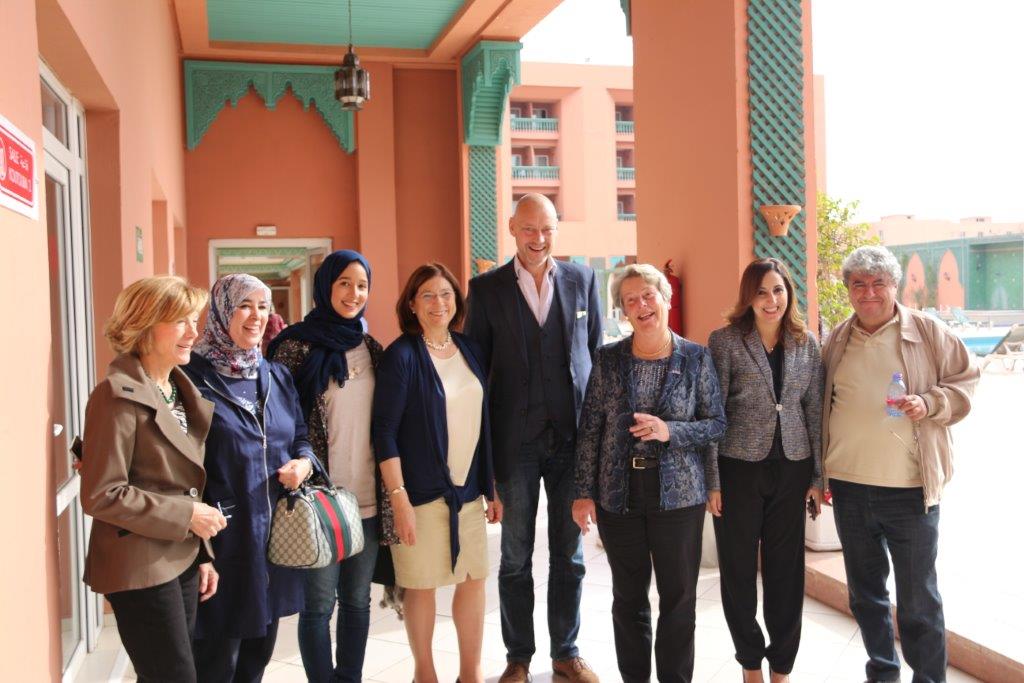
INLW was represented at the Meeting by Joaquima Alemany (Past President), Khadija El Morabit (Vice President for MENA region), Lysbeth van Valkenburg (Treasurer) and Margaret de Vos van Steenwijk (President).
On Thursday afternoon, we kicked off with the discussion on the importance of working together between political parties, NGO’s and Networks in different regions. Within Liberal International we distinguish different regional liberal networks like CALD (Asian liberal Parties) ALDE (European Liberal parties) Relial (Latin American), ALN (African Liberal Network), ALF (Arabic Liberals) and Libseen (East European).
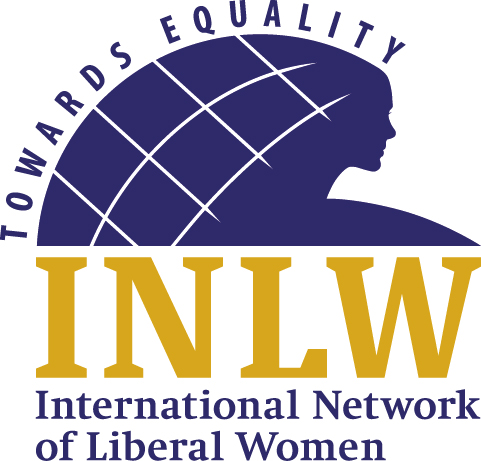
 Visit our Facebook page
Visit our Facebook page